317 papers:
 QoSA-2015-HofigZS #automation #dependence #using
QoSA-2015-HofigZS #automation #dependence #using- Automated Failure Propagation using Inner Port Dependency Traces (KH, MZ, KS), pp. 123–128.
 CASE-2015-CheongSB #ad hoc #automation #optimisation
CASE-2015-CheongSB #ad hoc #automation #optimisation- Ad-hoc automated teller machine failure forecast and field service optimization (MLFC, KPS, BCB), pp. 1427–1433.
 CASE-2015-KaipaTSKLG #automation #using
CASE-2015-KaipaTSKLG #automation #using- Resolving automated perception system failures in bin-picking tasks using assistance from remote human operators (KNK, SSTK, SS, AMK, JDL, SKG), pp. 1453–1458.
 DATE-2015-AwanoHS #named #performance #probability
DATE-2015-AwanoHS #named #performance #probability- ECRIPSE: an efficient method for calculating RTN-induced failure probability of an SRAM cell (HA, MH, TS), pp. 549–554.
 DATE-2015-BishnoiLGF #2d #named
DATE-2015-BishnoiLGF #2d #named- d2-LBDR: distance-driven routing to handle permanent failures in 2D mesh NOCs (RB, VL, MSG, JF), pp. 800–805.
 DATE-2015-DoblerHRPRB #adaptation #identification #named
DATE-2015-DoblerHRPRB #adaptation #identification #named- Bordersearch: an adaptive identification of failure regions (MD, MH, MR, GP, WR, MB), pp. 1036–1041.
 SANER-2015-RoehmNB #automation #interactive
SANER-2015-RoehmNB #automation #interactive- Automated extraction of failure reproduction steps from user interaction traces (TR, SN, BB), pp. 121–130.
 SEFM-2015-KringsBL #proving
SEFM-2015-KringsBL #proving- From Failure to Proof: The ProB Disprover for B and Event-B (SK, JB, ML), pp. 199–214.
 CSCW-2015-Warncke-WangAHT #community #quality
CSCW-2015-Warncke-WangAHT #community #quality- The Success and Failure of Quality Improvement Projects in Peer Production Communities (MWW, VRA, BH, LGT), pp. 743–756.
 ICSE-v1-2015-PastoreM #detection #named
ICSE-v1-2015-PastoreM #detection #named- ZoomIn: Discovering Failures by Detecting Wrong Assertions (FP, LM), pp. 66–76.
 ICSE-v2-2015-AndersonSD #case study #industrial #predict
ICSE-v2-2015-AndersonSD #case study #industrial #predict- Striving for Failure: An Industrial Case Study about Test Failure Prediction (JA, SS, HD), pp. 49–58.
 HPDC-2015-GamellTHMKCP
HPDC-2015-GamellTHMKCP- Exploring Failure Recovery for Stencil-based Applications at Extreme Scales (MG, KT, MAH, JM, HK, JC, MP), pp. 279–282.
 SOSP-2015-KasikciSPPC #automation #sketching
SOSP-2015-KasikciSPPC #automation #sketching- Failure sketching: a technique for automated root cause diagnosis of in-production failures (BK, BS, CP, GP, GC), pp. 344–360.
 CAV-2015-LahiriSH #automation #equivalence
CAV-2015-LahiriSH #automation #equivalence- Automatic Rootcausing for Program Equivalence Failures in Binaries (SKL, RS, CH), pp. 362–379.
 ICST-2015-MahajanH #detection #html #locality #using
ICST-2015-MahajanH #detection #html #locality #using- Detection and Localization of HTML Presentation Failures Using Computer Vision-Based Techniques (SM, WGJH), pp. 1–10.
 ICST-2015-MahajanH15a #debugging #html #named
ICST-2015-MahajanH15a #debugging #html #named- WebSee: A Tool for Debugging HTML Presentation Failures (SM, WGJH), pp. 1–8.
 QoSA-2014-BuhnovaCF #bibliography #modelling #predict #reliability
QoSA-2014-BuhnovaCF #bibliography #modelling #predict #reliability- Failure data collection for reliability prediction models: a survey (BB, SC, LF), pp. 83–92.
 ASE-2014-MahajanH #comparison #html #image #using
ASE-2014-MahajanH #comparison #html #image #using- Finding HTML presentation failures using image comparison techniques (SM, WGJH), pp. 91–96.
 DAC-2014-MukherjeeL
DAC-2014-MukherjeeL- Leveraging pre-silicon data to diagnose out-of-specification failures in mixed-signal circuits (PM, PL), p. 6.
 DAC-2014-WuXKCH #named #simulation #statistics #towards
DAC-2014-WuXKCH #named #simulation #statistics #towards- REscope: High-dimensional Statistical Circuit Simulation towards Full Failure Region Coverage (WW, WX, RK, YLC, LH), p. 6.
 DATE-2014-FriedlerKMNS #effectiveness #locality #slicing #using
DATE-2014-FriedlerKMNS #effectiveness #locality #slicing #using- Effective post-silicon failure localization using dynamic program slicing (OF, WK, AM, AN, VS), pp. 1–6.
 DATE-2014-RamboTDAE #analysis #realtime
DATE-2014-RamboTDAE #analysis #realtime- Failure analysis of a network-on-chip for real-time mixed-critical systems (EAR, AT, JD, LA, RE), pp. 1–4.
 VLDB-2015-ShenCJLOT14 #distributed #graph #performance
VLDB-2015-ShenCJLOT14 #distributed #graph #performance- Fast Failure Recovery in Distributed Graph Processing Systems (YS, GC, HVJ, WL, BCO, BMT), pp. 437–448.
 ITiCSE-2014-WatsonL #programming #revisited
ITiCSE-2014-WatsonL #programming #revisited- Failure rates in introductory programming revisited (CW, FWBL), pp. 39–44.
 FM-2014-MaricS #hardware #memory management #transaction #verification
FM-2014-MaricS #hardware #memory management #transaction #verification- Verification of a Transactional Memory Manager under Hardware Failures and Restarts (OM, CS), pp. 449–464.
 CHI-2014-GreenbergG #learning #online
CHI-2014-GreenbergG #learning #online- Learning to fail: experiencing public failure online through crowdfunding (MDG, EG), pp. 581–590.
 ICEIS-v1-2014-RezendeJC #communication #problem #workflow
ICEIS-v1-2014-RezendeJC #communication #problem #workflow- Possibilistic Interorganizational Workflow Net for the Recovery Problem Concerning Communication Failures (LPdR, SJ, JC), pp. 432–439.
 KDD-2014-HerodotouDBOF #locality #network #realtime #scalability
KDD-2014-HerodotouDBOF #locality #network #realtime #scalability- Scalable near real-time failure localization of data center networks (HH, BD, SB, GO, PF), pp. 1689–1698.
 SAC-2014-WangWPSC #collaboration #network #process
SAC-2014-WangWPSC #collaboration #network #process- A collaborative processes synchronization method with regards to system crashes and network failures (LW, AW, LFP, MvS, CC), pp. 1393–1398.
 FSE-2014-SwansonCDGF #adaptation #configuration management #self
FSE-2014-SwansonCDGF #adaptation #configuration management #self- Beyond the rainbow: self-adaptive failure avoidance in configurable systems (JS, MBC, MBD, BJG, JF), pp. 377–388.
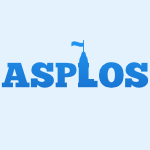 ASPLOS-2014-ArulrajJL #hardware #memory management
ASPLOS-2014-ArulrajJL #hardware #memory management- Leveraging the short-term memory of hardware to diagnose production-run software failures (JA, GJ, SL), pp. 207–222.
 OSDI-2014-YuanLZRZZJS #analysis #data-driven #distributed #testing
OSDI-2014-YuanLZRZZJS #analysis #data-driven #distributed #testing- Simple Testing Can Prevent Most Critical Failures: An Analysis of Production Failures in Distributed Data-Intensive Systems (DY, YL, XZ, GRR, XZ, YZ, PJ, MS), pp. 249–265.
 OSDI-2014-ZhaiCWF #as a service #correlation #independence
OSDI-2014-ZhaiCWF #as a service #correlation #independence- Heading Off Correlated Failures through Independence-as-a-Service (EZ, RC, DIW, BF), pp. 317–334.
 PPoPP-2014-CunninghamGHIKMSTT #performance #programming
PPoPP-2014-CunninghamGHIKMSTT #performance #programming- Resilient X10: efficient failure-aware programming (DC, DG, BH, AI, KK, HM, VAS, MT, OT), pp. 67–80.
 ICST-2014-KifetewJTOT #grammarware #source code
ICST-2014-KifetewJTOT #grammarware #source code- Reproducing Field Failures for Programs with Complex Grammar-Based Input (FMK, WJ, RT, AO, PT), pp. 163–172.
 ASE-2013-KifetewJTOT #approach #grammarware #named #source code
ASE-2013-KifetewJTOT #approach #grammarware #named #source code- SBFR: A search based approach for reproducing failures of programs with grammar based input (FMK, WJ, RT, AO, PT), pp. 604–609.
 CASE-2013-ChenK #distributed #probability
CASE-2013-ChenK #distributed #probability- Decentralized failure diagnosis of stochastic discrete event systems (JC, RK), pp. 1083–1088.
 CASE-2013-NaikMRHB
CASE-2013-NaikMRHB- An example of computing the failure-tolerant workspace area for a planar kinematically redundant robot (PSN, AAM, RGR, RCH, KMBG), pp. 306–311.
 DATE-2013-GuoYZC #hybrid #low cost
DATE-2013-GuoYZC #hybrid #low cost- Low cost power failure protection for MLC NAND flash storage systems with PRAM/DRAM hybrid buffer (JG, JY, YZ, YC), pp. 859–864.
 ICPC-2013-RoehmGBJM #interactive #monitoring
ICPC-2013-RoehmGBJM #interactive #monitoring- Monitoring user interactions for supporting failure reproduction (TR, NG, BB, CJ, WM), pp. 73–82.
 ICSM-2013-LeL #approach #automation #effectiveness #fault #locality #predict #tool support
ICSM-2013-LeL #approach #automation #effectiveness #fault #locality #predict #tool support- Will Fault Localization Work for These Failures? An Automated Approach to Predict Effectiveness of Fault Localization Tools (TDBL, DL), pp. 310–319.
 PLDI-2013-HuangZD #concurrent #named
PLDI-2013-HuangZD #concurrent #named- CLAP: recording local executions to reproduce concurrency failures (JH, CZ, JD), pp. 141–152.
 HIMI-LCCB-2013-KuritaKWS #analysis
HIMI-LCCB-2013-KuritaKWS #analysis- A Method for Service Failure Effects Analysis Based on Customer Satisfaction (YK, KK, KW, YS), pp. 485–494.
 KDIR-KMIS-2013-Ibarra-SanchezPO #analysis #case study #risk management #using
KDIR-KMIS-2013-Ibarra-SanchezPO #analysis #case study #risk management #using- Hospital Risk Management using Healthcare Failure Mode and Effects Analysis — A Case Study on Ventilators Whithin an Intensive Care Unit (MAIS, ABPA, MROP), pp. 328–335.
 SAC-2013-HuangXCL #adaptation #algorithm #analysis #detection #implementation #parallel #random testing #testing
SAC-2013-HuangXCL #adaptation #algorithm #analysis #detection #implementation #parallel #random testing #testing- Failure-detection capability analysis of implementing parallelism in adaptive random testing algorithms (RH, XX, JC, YL), pp. 1049–1054.
 SAC-2013-VeeraragavanBMVNM #analysis #comprehension #distributed #experience #interactive #metric #multi #quality
SAC-2013-VeeraragavanBMVNM #analysis #comprehension #distributed #experience #interactive #metric #multi #quality- Understanding the quality of experience in modern distributed interactive multimedia applications in presence of failures: metrics and analysis (NRV, AB, LM, RV, NN, HM), pp. 439–446.
 ICSE-2013-BellSK #lightweight #named
ICSE-2013-BellSK #lightweight #named- Chronicler: lightweight recording to reproduce field failures (JB, NS, GEK), pp. 362–371.
 ICSE-2013-CarzanigaGMPP #automation #runtime
ICSE-2013-CarzanigaGMPP #automation #runtime- Automatic recovery from runtime failures (AC, AG, AM, NP, MP), pp. 782–791.
 ICSE-2013-Ell #developer #identification #network
ICSE-2013-Ell #developer #identification #network- Identifying failure inducing developer pairs within developer networks (JE), pp. 1471–1473.
 ICSE-2013-Jin #debugging
ICSE-2013-Jin #debugging- Reproducing and debugging field failures in house (WJ), pp. 1441–1443.
 ICSE-2013-LiZLXLLX #distributed #source code
ICSE-2013-LiZLXLLX #distributed #source code- A characteristic study on failures of production distributed data-parallel programs (SL, HZ, HL, TX, HL, WL, TX), pp. 963–972.
 ICSE-2013-Simpson #communication #detection #developer
ICSE-2013-Simpson #communication #detection #developer- Changeset based developer communication to detect software failures (BS), pp. 1468–1470.
 ICSE-2013-SukkerdBWZB #comprehension
ICSE-2013-SukkerdBWZB #comprehension- Understanding regression failures through test-passing and test-failing code changes (RS, IB, JW, SZ, YB), pp. 1177–1180.
 ASPLOS-2013-ArulrajCJL #hardware #performance
ASPLOS-2013-ArulrajCJL #hardware #performance- Production-run software failure diagnosis via hardware performance counters (JA, PCC, GJ, SL), pp. 101–112.
 ASPLOS-2013-LuciaC #empirical #parallel #source code #thread
ASPLOS-2013-LuciaC #empirical #parallel #source code #thread- Cooperative empirical failure avoidance for multithreaded programs (BL, LC), pp. 39–50.
 HPCA-2013-MahmoodKH #adaptation #architecture #named #scalability
HPCA-2013-MahmoodKH #adaptation #architecture #named #scalability- Macho: A failure model-oriented adaptive cache architecture to enable near-threshold voltage scaling (TM, SK, SH), pp. 532–541.
 ICLP-J-2013-GangeNSSS #constraints #logic programming
ICLP-J-2013-GangeNSSS #constraints #logic programming- Failure tabled constraint logic programming by interpolation (GG, JAN, PS, HS, PJS), pp. 593–607.
 ICST-2013-PastoreM #debugging #named
ICST-2013-PastoreM #debugging #named- AVA: Supporting Debugging with Failure Interpretations (FP, LM), pp. 416–421.
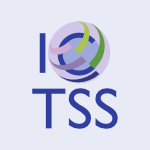 ICTSS-2013-ElyasovPH #algebra #mining #specification
ICTSS-2013-ElyasovPH #algebra #mining #specification- Guided Algebraic Specification Mining for Failure Simplification (AE, ISWBP, JH), pp. 223–238.
 ISSTA-2013-JinO #fault #locality #named
ISSTA-2013-JinO #fault #locality #named- F3: fault localization for field failures (WJ, AO), pp. 213–223.
 ASE-2012-YuLCZ #debugging #fault
ASE-2012-YuLCZ #debugging #fault- Practical isolation of failure-inducing changes for debugging regression faults (KY, ML, JC, XZ), pp. 20–29.
 DATE-2012-Shahid #estimation #performance
DATE-2012-Shahid #estimation #performance- Cross entropy minimization for efficient estimation of SRAM failure rate (MAS), pp. 230–235.
 DATE-2012-VatajeluF #evaluation #parametricity #performance #reliability
DATE-2012-VatajeluF #evaluation #parametricity #performance #reliability- Efficiency evaluation of parametric failure mitigation techniques for reliable SRAM operation (EIV, JF), pp. 1343–1348.
 DATE-2012-WuLMC #approach #correlation
DATE-2012-WuLMC #approach #correlation- Mitigating lifetime underestimation: A system-level approach considering temperature variations and correlations between failure mechanisms (KCW, MCL, DM, SCC), pp. 1269–1274.
 VLDB-2012-GraefeK #database #detection
VLDB-2012-GraefeK #database #detection- Definition, Detection, and Recovery of Single-Page Failures, a Fourth Class of Database Failures (GG, HAK), pp. 646–655.
 ICPC-2012-ParninR #memory management
ICPC-2012-ParninR #memory management- Programmer information needs after memory failure (CP, SR), pp. 123–132.
 KDD-2012-OlteanuS #clustering #correlation #energy #named #network #nondeterminism #predict
KDD-2012-OlteanuS #clustering #correlation #energy #named #network #nondeterminism #predict- DAGger: clustering correlated uncertain data (to predict asset failure in energy networks) (DO, SJvS), pp. 1504–1507.
 RecSys-2012-EkstrandR #algorithm #predict #recommendation
RecSys-2012-EkstrandR #algorithm #predict #recommendation- When recommenders fail: predicting recommender failure for algorithm selection and combination (MDE, JR), pp. 233–236.
 REFSQ-2012-RaspotnigO #analysis #case study #diagrams #sequence chart
REFSQ-2012-RaspotnigO #analysis #case study #diagrams #sequence chart- Supporting Failure Mode and Effect Analysis: A Case Study with Failure Sequence Diagrams (CR, ALO), pp. 117–131.
 SAC-2012-AtifMO #detection #verification
SAC-2012-AtifMO #detection #verification- Formal verification of Unreliable Failure Detectors in Partially Synchronous Systems (MA, MRM, AO), pp. 478–485.
 FSE-2012-DiGiuseppeJ12a #clustering #concept
FSE-2012-DiGiuseppeJ12a #clustering #concept- Concept-based failure clustering (ND, JAJ), p. 29.
 ICSE-2012-JinO #debugging #named
ICSE-2012-JinO #debugging #named- BugRedux: Reproducing field failures for in-house debugging (WJ, AO), pp. 474–484.
 ICSE-2012-Yu #analysis #identification #using
ICSE-2012-Yu #analysis #identification #using- Improving failure-inducing changes identification using coverage analysis (KY), pp. 1604–1606.
 HPDC-2012-DinuN #comprehension
HPDC-2012-DinuN #comprehension- Understanding the effects and implications of compute node related failures in hadoop (FD, TSEN), pp. 187–198.
 OSDI-2012-YuanPHLLTZS
OSDI-2012-YuanPHLLTZS- Be Conservative: Enhancing Failure Diagnosis with Proactive Logging (DY, SP, PH, YL, MMJL, XT, YZ, SS), pp. 293–306.
 CAV-2012-BerdineCIW #abstraction #analysis
CAV-2012-BerdineCIW #abstraction #analysis- Diagnosing Abstraction Failure for Separation Logic-Based Analyses (JB, AC, SI, CMW), pp. 155–173.
 ICST-2012-DiGiuseppeJ #behaviour #clustering #empirical #fault
ICST-2012-DiGiuseppeJ #behaviour #clustering #empirical #fault- Software Behavior and Failure Clustering: An Empirical Study of Fault Causality (ND, JAJ), pp. 191–200.
 ICST-2012-GhandehariLXKK #combinator #identification #testing
ICST-2012-GhandehariLXKK #combinator #identification #testing- Identifying Failure-Inducing Combinations in a Combinatorial Test Set (LSGG, YL, TX, DRK, RK), pp. 370–379.
 ICST-2012-ShakyaXLLKK #classification #combinator #testing #using
ICST-2012-ShakyaXLLKK #classification #combinator #testing #using- Isolating Failure-Inducing Combinations in Combinatorial Testing Using Test Augmentation and Classification (KS, TX, NL, YL, RK, DRK), pp. 620–623.
 ISSTA-2012-RobetalerFZO #generative #testing
ISSTA-2012-RobetalerFZO #generative #testing- Isolating failure causes through test case generation (JR, GF, AZ, AO), pp. 309–319.
 CBSE-2011-DistefanoFGM #analysis #composition #multi #reliability #workflow
CBSE-2011-DistefanoFGM #analysis #composition #multi #reliability #workflow- A compositional method for reliability analysis of workflows affected by multiple failure modes (SD, AF, CG, RM), pp. 149–158.
 QoSA-ISARCS-2011-HofigD #analysis #execution
QoSA-ISARCS-2011-HofigD #analysis #execution- Failure-dependent execution time analysis (KH, DD), pp. 115–122.
 ASE-2011-GanaiAWGB #concurrent #multi #named #predict #testing #thread
ASE-2011-GanaiAWGB #concurrent #multi #named #predict #testing #thread- BEST: A symbolic testing tool for predicting multi-threaded program failures (MKG, NA, CW, AG, GB), pp. 596–599.
 ASE-2011-StehleLSRM #geometry #using
ASE-2011-StehleLSRM #geometry #using- Diagnosis of software failures using computational geometry (ES, KL, MS, CR, SM), pp. 496–499.
 ASE-2011-ZhangMPL #monitoring #predict #runtime
ASE-2011-ZhangMPL #monitoring #predict #runtime- Run-time systems failure prediction via proactive monitoring (PZ, HM, AP, XL), pp. 484–487.
 DAC-2011-DongL #performance #predict
DAC-2011-DongL #performance #predict- Efficient SRAM failure rate prediction via Gibbs sampling (CD, XL), pp. 200–205.
 DATE-2011-DrmanacSWWA #multi #optimisation #parametricity #predict #testing
DATE-2011-DrmanacSWWA #multi #optimisation #parametricity #predict #testing- Multidimensional parametric test set optimization of wafer probe data for predicting in field failures and setting tighter test limits (DGD, NS, LW, LCW, MSA), pp. 794–799.
 SIGMOD-2011-Quiane-RuizPSD #pipes and filters
SIGMOD-2011-Quiane-RuizPSD #pipes and filters- RAFT at work: speeding-up mapreduce applications under task and node failures (JAQR, CP, JS, JD), pp. 1225–1228.
 ICSM-2011-ZhangKK
ICSM-2011-ZhangKK- Localizing failure-inducing program edits based on spectrum information (LZ, MK, SK), pp. 23–32.
 PASTE-2011-QiNSR
PASTE-2011-QiNSR- Locating failure-inducing environment changes (DQ, MNN, TS, AR), pp. 29–36.
 CIAA-2011-FelscherT #composition #detection
CIAA-2011-FelscherT #composition #detection- Compositional Failure Detection in Structured Transition Systems (IF, WT), pp. 130–141.
 FM-2011-ChenLW #communication #process #refinement
FM-2011-ChenLW #communication #process #refinement- Failure-Divergence Refinement of Compensating Communicating Processes (ZC, ZL, JW), pp. 262–277.
 HCI-UA-2011-JohnsonLTS #approach #comprehension #monitoring #towards
HCI-UA-2011-JohnsonLTS #approach #comprehension #monitoring #towards- Toward an Understanding of a Computerized Monitoring System Failure: An Interpretive Approach (NJ, YL, FT, SS), pp. 336–345.
 HIMI-v2-2011-KrautKBMSCV #effectiveness
HIMI-v2-2011-KrautKBMSCV #effectiveness- Effects of Data Communications Failure on Air Traffic Controller Sector Management Effectiveness, Situation Awareness, and Workload (JMK, AK, SB, CAM, TZS, DC, KPLV), pp. 493–499.
 ICEIS-v2-2011-FronzaSSV #approach #predict #towards
ICEIS-v2-2011-FronzaSSV #approach #predict #towards- Toward a Non Invasive Control of Applications — A Biomedical Approach to Failure Prediction (IF, AS, GS, JV), pp. 83–91.
 ICEIS-v3-2011-TangX #analysis #communication #modelling #network
ICEIS-v3-2011-TangX #analysis #communication #modelling #network- Modeling and Analysis of a Power Line Communication Network Subject to Channel Failure (ST, YX), pp. 184–189.
 SEKE-2011-FronzaSSV #predict #using
SEKE-2011-FronzaSSV #predict #using- Failure Prediction based on Log Files Using the Cox Proportional Hazard Model (IF, AS, GS, JV), pp. 456–461.
 SEKE-2011-ShinM #embedded #self
SEKE-2011-ShinM #embedded #self- Self-Management of External Device Failures in Embedded Software Systems (MES, PM), pp. 543–546.
 OOPSLA-2011-JoshiGS #injection #multi #named #programmable
OOPSLA-2011-JoshiGS #injection #multi #named #programmable- PREFAIL: a programmable tool for multiple-failure injection (PJ, HSG, KS), pp. 171–188.
 RE-2011-FitzgeraldLF #feature model #predict
RE-2011-FitzgeraldLF #feature model #predict- Early failure prediction in feature request management systems (CF, EL, AF), pp. 229–238.
 ESEC-FSE-2011-Rossler #comprehension
ESEC-FSE-2011-Rossler #comprehension- Understanding failures through facts (JR), pp. 404–407.
 ICSE-2011-CataldoH #analysis #development #empirical #feature model #integration
ICSE-2011-CataldoH #analysis #development #empirical #feature model #integration- Factors leading to integration failures in global feature-oriented development: an empirical analysis (MC, JDH), pp. 161–170.
 SOSP-2011-LenersWHAW #detection #distributed #network
SOSP-2011-LenersWHAW #detection #distributed #network- Detecting failures in distributed systems with the Falcon spy network (JBL, HW, WLH, MKA, MW), pp. 279–294.
 ICST-2011-CzerwonkaDNTT #analysis #case study #experience #named #predict
ICST-2011-CzerwonkaDNTT #analysis #case study #experience #named #predict- CRANE: Failure Prediction, Change Analysis and Test Prioritization in Practice — Experiences from Windows (JC, RD, NN, AT, AT), pp. 357–366.
 ICST-2011-ZimmermannNHPW #dependence #empirical
ICST-2011-ZimmermannNHPW #dependence #empirical- An Empirical Study on the Relation between Dependency Neighborhoods and Failures (TZ, NN, KH, RP, LW), pp. 347–356.
 ICTSS-2011-ShinboH #communication #detection #empirical #mobile
ICTSS-2011-ShinboH #communication #detection #empirical #mobile- An Empirical Study on Applying Anomaly Detection Technique to Detecting Software and Communication Failures in Mobile Data Communication Services (HS, TH), pp. 195–208.
 ISSTA-2011-BurgerZ
ISSTA-2011-BurgerZ- Minimizing reproduction of software failures (MB, AZ), pp. 221–231.
 ISSTA-2011-ZhangZ #adaptation #interactive #parametricity #testing
ISSTA-2011-ZhangZ #adaptation #interactive #parametricity #testing- Characterizing failure-causing parameter interactions by adaptive testing (ZZ, JZ), pp. 331–341.
 CBSE-2010-FilieriGGM #analysis #component #multi #reliability
CBSE-2010-FilieriGGM #analysis #component #multi #reliability- Reliability Analysis of Component-Based Systems with Multiple Failure Modes (AF, CG, VG, RM), pp. 1–20.
 ASE-2010-LiHG #ajax #behaviour #detection #interactive #web
ASE-2010-LiHG #ajax #behaviour #detection #interactive #web- Detecting user-visible failures in AJAX web applications by analyzing users’ interaction behaviors (WL, MJH, CG), pp. 155–158.
 CASE-2010-RodriguezBMRW #analysis #assembly #detection
CASE-2010-RodriguezBMRW #analysis #assembly #detection- Failure detection in assembly: Force signature analysis (AR, DB, MTM, GFR, JW), pp. 210–215.
 CASE-2010-Tobon-MejiaMZT #markov
CASE-2010-Tobon-MejiaMZT #markov- A mixture of Gaussians Hidden Markov Model for failure diagnostic and prognostic (DATM, KM, NZ, GT), pp. 338–343.
 DATE-2010-ChenO #adaptation #effectiveness #identification
DATE-2010-ChenO #adaptation #effectiveness #identification- Cost-effective IR-drop failure identification and yield recovery through a failure-adaptive test scheme (MC, AO), pp. 63–68.
 DATE-2010-OstendorffWSK #adaptation #approach
DATE-2010-OstendorffWSK #adaptation #approach- A new approach for adaptive failure diagnostics based on emulation test (SO, HDW, JS, SK), pp. 327–330.
 FASE-2010-LuoZZH #approach #concurrent #lightweight
FASE-2010-LuoZZH #approach #concurrent #lightweight- A Lightweight and Portable Approach to Making Concurrent Failures Reproducible (QL, SZ, JZ, MH), pp. 323–337.
 ICSM-2010-GergelyBGG #case study #experience #industrial #metric
ICSM-2010-GergelyBGG #case study #experience #industrial #metric- Effect of test completeness and redundancy measurement on post release failures — An industrial experience report (TG, ÁB, TG, MIG), pp. 1–10.
 STOC-2010-DuanP #graph
STOC-2010-DuanP #graph- Connectivity oracles for failure prone graphs (RD, SP), pp. 465–474.
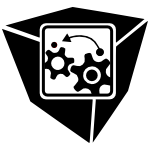 SOFTVIS-2010-AdamoliH #analysis #framework #named #performance #visualisation
SOFTVIS-2010-AdamoliH #analysis #framework #named #performance #visualisation- Trevis: a context tree visualization & analysis framework and its use for classifying performance failure reports (AA, MH), pp. 73–82.
 ICEIS-AIDSS-2010-Vilas-BoasSPSR #data mining #mining #predict
ICEIS-AIDSS-2010-Vilas-BoasSPSR #data mining #mining #predict- Hourly Prediction of Organ Failure and Outcome in Intensive Care based on Data Mining Techniques (MVB, MFS, FP, ÁMS, FR), pp. 270–277.
 ICPR-2010-KalalMM #automation #detection #fault
ICPR-2010-KalalMM #automation #detection #fault- Forward-Backward Error: Automatic Detection of Tracking Failures (ZK, KM, JM), pp. 2756–2759.
 KMIS-2010-KrainesG #ontology #reuse #semantics
KMIS-2010-KrainesG #ontology #reuse #semantics- Supporting Reuse of Knowledge of Failures through Ontology-based Semantic Search (SBK, WG), pp. 164–169.
 SEKE-2010-PimentelSC #requirements
SEKE-2010-PimentelSC #requirements- Conditions for ignoring failures based on a requirements model (JP, ES, JC), pp. 48–53.
 SEKE-2010-WangPACC #analysis #automation #process
SEKE-2010-WangPACC #analysis #automation #process- An Automatic Failure Mode and Effect Analysis Technique for Processes Defined in the Little-JIL Process Definition Language (DW, JP, GSA, LAC, BC), pp. 765–770.
 ECOOP-2010-DhooliaMSS #debugging #using
ECOOP-2010-DhooliaMSS #debugging #using- Debugging Model-Transformation Failures Using Dynamic Tainting (PD, SM, VSS, SS), pp. 26–51.
 FSE-2010-Johnson10a #research
FSE-2010-Johnson10a #research- Avoiding the classic catastrophic computer science failure mode: 2010 acm sigsoft outstanding research award talk (REJ), pp. 5–6.
 ICSE-2010-Schroter #recommendation
ICSE-2010-Schroter #recommendation- Failure preventing recommendations (AS), pp. 397–400.
 CASE-2009-LyTBPV #fault #perspective
CASE-2009-LyTBPV #fault #perspective- Fault diagnosis and failure prognosis for engineering systems: A global perspective (CL, KT, CSB, RP, GJV), pp. 108–115.
 CASE-2009-ZiedSN #maintenance #probability #random
CASE-2009-ZiedSN #maintenance #probability #random- An optimal production/maintenance planning under stochastic random demand, service level and failure rate (ZH, SD, NR), pp. 292–297.
 DAC-2009-TamPB #automation #validation
DAC-2009-TamPB #automation #validation- Automated failure population creation for validating integrated circuit diagnosis methods (WCT, OP, RD(B), pp. 708–713.
 DAC-2009-WangYLP #analysis #parametricity
DAC-2009-WangYLP #analysis #parametricity- SRAM parametric failure analysis (JW, SY, XL, LTP), pp. 496–501.
 DATE-2009-TangGCR #generative #multi
DATE-2009-TangGCR #generative #multi- Improving compressed test pattern generation for multiple scan chain failure diagnosis (XT, RG, WTC, SMR), pp. 1000–1005.
 FASE-2009-SumnerZ #algorithm #automation
FASE-2009-SumnerZ #algorithm #automation- Algorithms for Automatically Computing the Causal Paths of Failures (WNS, XZ), pp. 355–369.
 CSMR-2009-MarwedeRHH #automation #behaviour #correlation #distributed #scalability
CSMR-2009-MarwedeRHH #automation #behaviour #correlation #distributed #scalability- Automatic Failure Diagnosis Support in Distributed Large-Scale Software Systems Based on Timing Behavior Anomaly Correlation (NM, MR, AvH, WH), pp. 47–58.
 ICSM-2009-JiaSYL #data transformation #difference #predict #question #set
ICSM-2009-JiaSYL #data transformation #difference #predict #question #set- Data transformation and attribute subset selection: Do they help make differences in software failure prediction? (HJ, FS, YY, QL), pp. 519–522.
 ICALP-v2-2009-GuerraouiR #mobile
ICALP-v2-2009-GuerraouiR #mobile- Names Trump Malice: Tiny Mobile Agents Can Tolerate Byzantine Failures (RG, ER), pp. 484–495.
 CHI-2009-GaverBKBJ #design #how #what
CHI-2009-GaverBKBJ #design #how #what- Anatomy of a failure: how we knew when our design went wrong, and what we learned from it (WWG, JB, TK, AB, NJ), pp. 2213–2222.
 KDD-2009-LoCHKS #approach #behaviour #classification #detection #mining
KDD-2009-LoCHKS #approach #behaviour #classification #detection #mining- Classification of software behaviors for failure detection: a discriminative pattern mining approach (DL, HC, JH, SCK, CS), pp. 557–566.
 TOOLS-EUROPE-2009-BoixCVMD #ad hoc #mobile #network
TOOLS-EUROPE-2009-BoixCVMD #ad hoc #mobile #network- A Leasing Model to Deal with Partial Failures in Mobile Ad Hoc Networks (EGB, TVC, JV, WDM, TD), pp. 231–251.
 RE-2009-TunJLNY #problem #using
RE-2009-TunJLNY #problem #using- Are Your Lights Off? Using Problem Frames to Diagnose System Failures (TTT, MJ, RCL, BN, YY), pp. 343–348.
 SAC-2009-KimmSHS #development #safety
SAC-2009-KimmSHS #development #safety- Failure management development for integrated automotive safety-critical software systems (HK, SYS, HsH, COS), pp. 517–521.
 ICSE-2009-MarianiPP #analysis #automation #tool support
ICSE-2009-MarianiPP #analysis #automation #tool support- A toolset for automated failure analysis (LM, FP, MP), pp. 563–566.
 ICSE-2009-WolfSDN #analysis #communication #developer #network #predict #social #using
ICSE-2009-WolfSDN #analysis #communication #developer #network #predict #social #using- Predicting build failures using social network analysis on developer communication (TW, AS, DD, THDN), pp. 1–11.
 SOSP-2009-KadavRS #hardware
SOSP-2009-KadavRS #hardware- Tolerating hardware device failures in software (AK, MJR, MMS), pp. 59–72.
 ISSTA-2009-ClauseO #automation #identification #named #using
ISSTA-2009-ClauseO #automation #identification #named #using- Penumbra: automatically identifying failure-relevant inputs using dynamic tainting (JAC, AO), pp. 249–260.
 ISSTA-2009-FoucheCP #array #incremental #scalability
ISSTA-2009-FoucheCP #array #incremental #scalability- Incremental covering array failure characterization in large configuration spaces (SF, MBC, AAP), pp. 177–188.
 CASE-2008-Morrison #evolution
CASE-2008-Morrison #evolution- Flow lines with regular service times: Evolution of delay, state dependent failures and semiconductor wafer fabrication (JRM), pp. 247–252.
 DAC-2008-LiASR #array #design #memory management #modelling #probability #random #statistics
DAC-2008-LiASR #array #design #memory management #modelling #probability #random #statistics- Modeling of failure probability and statistical design of spin-torque transfer magnetic random access memory (STT MRAM) array for yield enhancement (JL, CA, SSS, KR), pp. 278–283.
 DAC-2008-TamPB #analysis #automation #layout #locality #precise #using
DAC-2008-TamPB #analysis #automation #layout #locality #precise #using- Precise failure localization using automated layout analysis of diagnosis candidates (WCT, OP, RD(B), pp. 367–372.
 DATE-2008-ElmqvistN #analysis #component #incremental #tool support
DATE-2008-ElmqvistN #analysis #component #incremental #tool support- Tool Support for Incremental Failure Mode and Effects Analysis of Component-Based Systems (JE, SNT), pp. 921–927.
 PASTE-2008-ZhangLGZ #approach #effectiveness #hybrid #identification
PASTE-2008-ZhangLGZ #approach #effectiveness #hybrid #identification- Effective identification of failure-inducing changes: a hybrid approach (SZ, YL, ZG, JZ), pp. 77–83.
 PLDI-2008-DincklageD #analysis
PLDI-2008-DincklageD #analysis- Explaining failures of program analyses (DvD, AD), pp. 260–269.
 KR-2008-SardinaPG #behaviour #composition
KR-2008-SardinaPG #behaviour #composition- Behavior Composition in the Presence of Failure (SS, FP, GDG), pp. 640–650.
 SEKE-2008-DaiYZG #approach #composition #predict #self #web #web service
SEKE-2008-DaiYZG #approach #composition #predict #self #web #web service- Failure Prediction Based Self-healing Approach for Web Service Composition (YD, LY, BZ, KG), pp. 853–856.
 ECOOP-2008-ArtziKE #named
ECOOP-2008-ArtziKE #named- ReCrash: Making Software Failures Reproducible by Preserving Object States (SA, SK, MDE), pp. 542–565.
 TOOLS-EUROPE-2008-SteimannES #fault #testing #towards
TOOLS-EUROPE-2008-SteimannES #fault #testing #towards- Towards Raising the Failure of Unit Tests to the Level of Compiler-Reported Errors (FS, TEE, MS), pp. 60–79.
 SAC-2008-FahmyRJ #realtime #scheduling #thread
SAC-2008-FahmyRJ #realtime #scheduling #thread- Scheduling distributable real-time threads in the presence of crash failures and message losses (SFF, BR, EDJ), pp. 294–301.
 FSE-2008-MeneelyWSO #analysis #developer #network #predict #social
FSE-2008-MeneelyWSO #analysis #developer #network #predict #social- Predicting failures with developer networks and social network analysis (AM, LW, WS, JAO), pp. 13–23.
 FSE-2008-PinzgerNM #developer #network #predict #question
FSE-2008-PinzgerNM #developer #network #predict #question- Can developer-module networks predict failures? (MP, NN, BM), pp. 2–12.
 HPDC-2008-ShrinivasN #data mining #detection #grid #mining
HPDC-2008-ShrinivasN #data mining #detection #grid #mining- Issues in applying data mining to grid job failure detection and diagnosis (LS, JFN), pp. 239–240.
 ICST-2008-TravisonS #automation #identification #pattern matching
ICST-2008-TravisonS #automation #identification #pattern matching- Test Instrumentation and Pattern Matching for Automatic Failure Identification (DT, GS), pp. 377–386.
 CASE-2007-PanH #analysis
CASE-2007-PanH #analysis- Diagnosability Analysis and Sensor Selection in Discrete-Event Systems with Permanent Failures (JP, SHZ), pp. 869–874.
 DAC-2007-GuptaKKSS
DAC-2007-GuptaKKSS- Line-End Shortening is Not Always a Failure (PG, ABK, YK, SS, DS), pp. 270–271.
 DATE-2007-YangG
DATE-2007-YangG- Computing synchronizer failure probabilities (SY, MRG), pp. 1361–1366.
 VLDB-2007-SilbersteinGMPY #approach
VLDB-2007-SilbersteinGMPY #approach- Making Sense of Suppressions and Failures in Sensor Data: A Bayesian Approach (AS, AEG, KM, GP, JY), pp. 842–853.
 ICSM-2007-LiuZHB #approach
ICSM-2007-LiuZHB #approach- Indexing Noncrashing Failures: A Dynamic Program Slicing-Based Approach (CL, XZ, YZ, JH, BKB), pp. 455–464.
 HCI-IPT-2007-VillalbaPA #design #interactive #smarttech
HCI-IPT-2007-VillalbaPA #design #interactive #smarttech- User Interaction Design for a Wearable and IT Based Heart Failure System (EV, IP, MTA), pp. 1230–1239.
 ICEIS-SAIC-2007-LokeLIK #adaptation #approach #smarttech #towards #workflow
ICEIS-SAIC-2007-LokeLIK #adaptation #approach #smarttech #towards #workflow- Adaptive Workflows for Smart Devices — A Concrete Approach Towards Device Failures (SWL, SL, MI, SK), pp. 191–197.
 KDD-2007-Parthasarathy #data mining #learning #mining
KDD-2007-Parthasarathy #data mining #learning #mining- Data mining at the crossroads: successes, failures and learning from them (SP), pp. 1053–1055.
 RE-2007-HoWA #performance #requirements #specification
RE-2007-HoWA #performance #requirements #specification- Improving Performance Requirements Specifications from Field Failure Reports (CWH, LW, AIA), pp. 79–88.
 RE-2007-KamataT #how #quality #question #requirements
RE-2007-KamataT #how #quality #question #requirements- How Does Requirements Quality Relate to Project Success or Failure? (MIK, TT), pp. 69–78.
 SAC-2007-MaHA #detection #evaluation
SAC-2007-MaHA #detection #evaluation- Evaluation of the QoS of crash-recovery failure detection (TM, JH, SA), pp. 538–542.
 SAC-2007-SatzgerPTU #adaptation #detection #distributed
SAC-2007-SatzgerPTU #adaptation #detection #distributed- A new adaptive accrual failure detector for dependable distributed systems (BS, AP, WT, TU), pp. 551–555.
 ESEC-FSE-2007-SherriffHLW #identification #static analysis #using
ESEC-FSE-2007-SherriffHLW #identification #static analysis #using- Using groupings of static analysis alerts to identify files likely to contain field failures (MS, SSH, JML, LAW), pp. 565–568.
 ICSE-2007-ClauseO #debugging
ICSE-2007-ClauseO #debugging- A Technique for Enabling and Supporting Debugging of Field Failures (JAC, AO), pp. 261–270.
 HPDC-2007-RenEB #fine-grained
HPDC-2007-RenEB #fine-grained- Failure-aware checkpointing in fine-grained cycle sharing systems (XR, RE, SB), pp. 33–42.
 SOSP-2007-TucekLHXZ #named
SOSP-2007-TucekLHXZ #named- Triage: diagnosing production run failures at the user’s site (JT, SL, CH, SX, YZ), pp. 131–144.
 SAT-2007-AloulK #approach #deployment #satisfiability
SAT-2007-AloulK #approach #deployment #satisfiability- Sensor Deployment for Failure Diagnosis in Networked Aerial Robots: A Satisfiability-Based Approach (FAA, NK), pp. 369–376.
 CASE-2006-LuL #evaluation #independence #reliability #safety
CASE-2006-LuL #evaluation #independence #reliability #safety- Reliability evaluation of standby safety systems due to independent and common cause failures (LL, GL), pp. 264–269.
 DAC-2006-GhoshMKR #power management #reduction #self
DAC-2006-GhoshMKR #power management #reduction #self- Self-calibration technique for reduction of hold failures in low-power nano-scaled SRAM (SG, SM, KK, KR), pp. 971–976.
 DAC-2006-KanjJN #analysis #design
DAC-2006-KanjJN #analysis #design- Mixture importance sampling and its application to the analysis of SRAM designs in the presence of rare failure events (RK, RVJ, SRN), pp. 69–72.
 DATE-2006-Kundu #analysis #design
DATE-2006-Kundu #analysis #design- A design for failure analysis (DFFA) technique to ensure incorruptible signatures (SK), pp. 309–310.
 FM-2006-ArthoBH #injection #named #performance
FM-2006-ArthoBH #injection #named #performance- Enforcer — Efficient Failure Injection (CA, AB, SH), pp. 412–427.
 AdaEurope-2006-SharifiS #how #transaction
AdaEurope-2006-SharifiS #how #transaction- Replication-Aware Transactions: How to Roll a Transaction over Failures (MS, HS), pp. 203–214.
 AdaEurope-2006-WagnerF #geometry #modelling #reliability #sequence
AdaEurope-2006-WagnerF #geometry #modelling #reliability #sequence- A Software Reliability Model Based on a Geometric Sequence of Failure Rates (SW, HF), pp. 143–154.
 ICEIS-DISI-2006-RinderleBR #framework #process #semantics
ICEIS-DISI-2006-RinderleBR #framework #process #semantics- A Framework for Semantic Recovery Strategies in Case of Process Activity Failures (SR, SB, MR), pp. 136–143.
 KDD-2006-ZhaoLBX #data mining #identification #mining
KDD-2006-ZhaoLBX #data mining #identification #mining- Opportunity map: identifying causes of failure — a deployed data mining system (KZ, BL, JB, WX), pp. 892–901.
 SEKE-2006-MayerS #coordination #debugging #web #web service
SEKE-2006-MayerS #coordination #debugging #web #web service- Debugging Failures in Web Services Coordination (WM, MS), pp. 536–543.
 GPCE-2006-BaggeDHK #exception
GPCE-2006-BaggeDHK #exception- Stayin’ Alert: Moulding Failure and Exceptions to Your Needs (AHB, VD, MH, KTK), pp. 265–274.
 FSE-2006-LiuH #approach #fault #proximity
FSE-2006-LiuH #approach #fault #proximity- Failure proximity: a fault localization-based approach (CL, JH), pp. 46–56.
 FSE-2006-StorzerRRT #classification #java #source code #using
FSE-2006-StorzerRRT #classification #java #source code #using- Finding failure-inducing changes in java programs using change classification (MS, BGR, XR, FT), pp. 57–68.
 ICSE-2006-NagappanBZ #component #metric #mining #predict
ICSE-2006-NagappanBZ #component #metric #mining #predict- Mining metrics to predict component failures (NN, TB, AZ), pp. 452–461.
 CBSE-2005-GrunskeKP #component #evaluation #modelling #safety
CBSE-2005-GrunskeKP #component #evaluation #modelling #safety- Model-Driven Safety Evaluation with State-Event-Based Component Failure Annotations (LG, BK, YP), pp. 33–48.
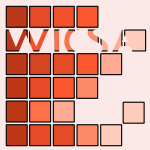 WICSA-2005-TekinerdoganSA #analysis #architecture #reliability #using
WICSA-2005-TekinerdoganSA #analysis #architecture #reliability #using- Software Architecture Reliability Analysis Using Failure Scenarios (BT, HS, MA), pp. 203–204.
 ASE-2005-GuptaHZG #using
ASE-2005-GuptaHZG #using- Locating faulty code using failure-inducing chops (NG, HH, XZ, RG), pp. 263–272.
 ASE-2005-SprenkleGSP #automation #detection #web
ASE-2005-SprenkleGSP #automation #detection #web- Automated replay and failure detection for web applications (SS, EG, SS, LLP), pp. 253–262.
 CASE-2005-ChewL #multi #robust
CASE-2005-ChewL #multi #robust- Robust supervisory control for production systems with multiple resource failures (SFC, MAL), pp. 375–380.
 CASE-2005-WangCL #capacity #robust #using
CASE-2005-WangCL #capacity #robust #using- Using shared resource capacity for robust control of failure prone manufacturing systems (SW, SFC, MAL), pp. 369–374.
 ICALP-2005-FokkinkN #finite #semantics
ICALP-2005-FokkinkN #finite #semantics- A Finite Basis for Failure Semantics (WF, SN), pp. 755–765.
 FM-2005-Johnson #debugging #formal method #using
FM-2005-Johnson #debugging #formal method #using- The Natural History of Bugs: Using Formal Methods to Analyse Software Related Failures in Space Missions (CWJ), pp. 9–25.
 IFM-2005-GrunskeLYW #analysis #automation #behaviour #design #specification
IFM-2005-GrunskeLYW #analysis #automation #behaviour #design #specification- An Automated Failure Mode and Effect Analysis Based on High-Level Design Specification with Behavior Trees (LG, PAL, NY, KW), pp. 129–149.
 IFM-2005-WeiH #csp
IFM-2005-WeiH #csp- Embedding the Stable Failures Model of CSP in PVS (KW, JH), pp. 246–265.
 ICEIS-v1-2005-AndreouL #analysis #parametricity #reliability
ICEIS-v1-2005-AndreouL #analysis #parametricity #reliability- Nonparametric Analysis of Software Reliability: Revealing the Nature of Software Failure Dataseries (ASA, CL), pp. 138–145.
 ICEIS-v3-2005-MenkhausA #analysis #embedded #metric
ICEIS-v3-2005-MenkhausA #analysis #embedded #metric- Metric Suite Directing the Failure Mode Analysis of Embedded Software Systems (GM, BA), pp. 266–273.
 KDD-2005-ChenJUY #component #detection #locality #online
KDD-2005-ChenJUY #component #detection #locality #online- Failure detection and localization in component based systems by online tracking (HC, GJ, CU, KY), pp. 750–755.
 KDD-2005-YamanishiM #mining #monitoring #network
KDD-2005-YamanishiM #mining #monitoring #network- Dynamic syslog mining for network failure monitoring (KY, YM), pp. 499–508.
 KDD-2005-YangL #learning #predict
KDD-2005-YangL #learning #predict- Learning to predict train wheel failures (CY, SL), pp. 516–525.
 SEKE-2005-ChenKZ #adaptation #effectiveness #on the #random testing #testing
SEKE-2005-ChenKZ #adaptation #effectiveness #on the #random testing #testing- On the Relationships between the Distribution of Failure-Causing Inputs and Effectiveness of Adaptive Random Testing (TYC, FCK, ZZ), pp. 306–311.
 ICSE-2005-CleveZ
ICSE-2005-CleveZ- Locating causes of program failures (HC, AZ), pp. 342–351.
 SOSP-2005-QinTSZ #debugging #named
SOSP-2005-QinTSZ #debugging #named- Rx: treating bugs as allergies — a safe method to survive software failures (FQ, JT, JS, YZ), pp. 235–248.
 DAC-2004-JerkeLS #design #layout
DAC-2004-JerkeLS #design #layout- Reliability-driven layout decompaction for electromigration failure avoidance in complex mixed-signal IC designs (GJ, JL, JS), pp. 181–184.
 DATE-v2-2004-BernardiniPM
DATE-v2-2004-BernardiniPM- A Tunneling Model for Gate Oxide Failure in Deep Sub-Micron Technology (SB, JMP, PM), pp. 1404–1405.
 DATE-v2-2004-TirumurtiKSC #approach #modelling #power management
DATE-v2-2004-TirumurtiKSC #approach #modelling #power management- A Modeling Approach for Addressing Power Supply Switching Noise Related Failures of Integrated Circuit (CT, SK, SSK, YSC), pp. 1078–1083.
 ITiCSE-WGR-2004-RountreeRRH #predict
ITiCSE-WGR-2004-RountreeRRH #predict- Interacting factors that predict success and failure in a CS1 course (NR, JR, AVR, RH), pp. 101–104.
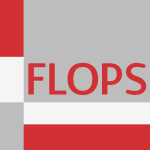 FLOPS-2004-BuenoLH #abstract interpretation #analysis #multi #standard
FLOPS-2004-BuenoLH #abstract interpretation #analysis #multi #standard- Multivariant Non-failure Analysis via Standard Abstract Interpretation (FB, PLG, MVH), pp. 100–116.
 FLOPS-2004-Kahl #calculus #pattern matching
FLOPS-2004-Kahl #calculus #pattern matching- Basic Pattern Matching Calculi: a Fresh View on Matching Failure (WK), pp. 276–290.
 ICEIS-v2-2004-SilvaCSGN #multi #network #using
ICEIS-v2-2004-SilvaCSGN #multi #network #using- Multiple Organ Failure Diagnosis Using Adverse Events and Neural Networks (ÁMS, PC, MFS, LG, JN), pp. 401–408.
 ICEIS-v5-2004-AvisonW #information management #lens #web
ICEIS-v5-2004-AvisonW #information management #lens #web- Information Systems Failure Explained through the Lens of the Cultural Web (DEA, DWW), pp. 203–210.
 SAC-2004-SheldonJ #embedded #reliability
SAC-2004-SheldonJ #embedded #reliability- Assessing the effect of failure severity, coincident failures and usage-profiles on the reliability of embedded control systems (FTS, KJ), pp. 826–833.
 FSE-2004-ManevichSA #named #static analysis
FSE-2004-ManevichSA #named #static analysis- PSE: explaining program failures via postmortem static analysis (RM, MS, SA, MD, ZY), pp. 63–72.
 OSDI-2004-DunaganHJKTW #distributed #lightweight #named
OSDI-2004-DunaganHJKTW #distributed #lightweight #named- FUSE: Lightweight Guaranteed Distributed Failure Notification (JD, NJAH, MBJ, DK, MT, AW), pp. 151–166.
 OSDI-2004-RinardCDRLB #security
OSDI-2004-RinardCDRLB #security- Enhancing Server Availability and Security Through Failure-Oblivious Computing (MCR, CC, DD, DMR, TL, WSB), pp. 303–316.
 OSDI-2004-ZhangZPPW #internet #monitoring #named
OSDI-2004-ZhangZPPW #internet #monitoring #named- PlanetSeer: Internet Path Failure Monitoring and Characterization in Wide-Area Services (MZ, CZ, VSP, LLP, RYW), pp. 167–182.
 ICALP-2003-BlomFN #axiom #on the #simulation
ICALP-2003-BlomFN #axiom #on the #simulation- On the Axiomatizability of Ready Traces, Ready Simulation, and Failure Traces (SB, WF, SN), pp. 109–118.
 FME-2003-Randell #fault #on the
FME-2003-Randell #fault #on the- On Failures and Faults (BR), pp. 18–39.
 ICEIS-v3-2003-NahouraiiWD #analysis #information management
ICEIS-v3-2003-NahouraiiWD #analysis #information management- Information System Failure: Analysis and Commentary (AN, JAW, AD), pp. 566–572.
 ICSE-2003-PodgurskiLFMMSW #automation
ICSE-2003-PodgurskiLFMMSW #automation- Automated Support for Classifying Software Failure Reports (AP, DL, PF, WM, MM, JS, BW), pp. 465–477.
 HPDC-2003-HwangK #flexibility #framework #grid #named #workflow
HPDC-2003-HwangK #flexibility #framework #grid #named #workflow- GridWorkflow: A Flexible Failure Handling Framework for the Grid (SH, CK), pp. 126–137.
 ICLP-2003-NieuwenborghV #order
ICLP-2003-NieuwenborghV #order- Order and Negation as Failure (DVN, DV), pp. 194–208.
 CBSE-2003-InverardiT #assembly #component #composition #synthesis
CBSE-2003-InverardiT #assembly #component #composition #synthesis- A compositional synthesis of failure-free connectors for correct components assembly (PI, MT), p. 17.
 DAC-2002-LeeKK #named #verification
DAC-2002-LeeKK #named #verification- VeriCDF: a new verification methodology for charged device failures (JL, KWK, SMK), pp. 874–879.
 ESOP-2002-WansbroughNSS #semantics #thread
ESOP-2002-WansbroughNSS #semantics #thread- Timing UDP: Mechanized Semantics for Sockets, Threads, and Failures (KW, MN, PS, AS), pp. 278–294.
 ICSM-2002-Schneidewind #detection #fault
ICSM-2002-Schneidewind #detection #fault- An Integrated Failure Detection and Fault Correction Model (NFS), pp. 238–241.
 FLOPS-2002-Lopez-FraguasS #functional #logic programming
FLOPS-2002-Lopez-FraguasS #functional #logic programming- Narrowing Failure in Functional Logic Programming (FJLF, JSH), pp. 212–227.
 IFM-2002-ZulkernineS #algorithm #automation #detection
IFM-2002-ZulkernineS #algorithm #automation #detection- Assume-Guarantee Algorithms for Automatic Detection of Software Failures (MZ, RES), pp. 89–108.
 AdaEurope-2002-DoudouGG #detection #encapsulation
AdaEurope-2002-DoudouGG #detection #encapsulation- Encapsulating Failure Detection: From Crash to Byzantine Failures (AD, BG, RG), pp. 24–50.
 ECOOP-2002-KienzleG #aspect-oriented #concurrent #named
ECOOP-2002-KienzleG #aspect-oriented #concurrent #named- AOP: Does It Make Sense? The Case of Concurrency and Failures (JK, RG), pp. 37–61.
 TOOLS-USA-2002-PeriorellisD #collaboration #enterprise
TOOLS-USA-2002-PeriorellisD #collaboration #enterprise- Organisational Failures in Dependable Collaborative Enterprise Systems (PP, JED), pp. 107–117.
 CAV-2002-YonedaKM #analysis #automation #constraints
CAV-2002-YonedaKM #analysis #automation #constraints- Automatic Derivation of Timing Constraints by Failure Analysis (TY, TK, CJM), pp. 195–208.
 ISSTA-2002-ChoiZ #concurrent #thread
ISSTA-2002-ChoiZ #concurrent #thread- Isolating failure-inducing thread schedules (JDC, AZ), pp. 210–220.
 DATE-2001-LechnerRH #comprehension #requirements #towards
DATE-2001-LechnerRH #comprehension #requirements #towards- Towards a better understanding of failure modes and test requirements of ADCs (AL, AR, BH), p. 803.
 CSEET-2001-DonaldsonJ
CSEET-2001-DonaldsonJ- Systems Failures (JD, JJ), pp. 185–186.
 CSEET-2001-DonaldsonJ01a #approach
CSEET-2001-DonaldsonJ01a #approach- Systems Failures: An Approach to Building a Coping Strategy (JD, JJ), pp. 187–190.
 CSEET-2001-Monarch #comprehension #re-engineering
CSEET-2001-Monarch #comprehension #re-engineering- Understanding Software Engineering Failure as Part of the SWEBOK (IM), p. 191–?.
 ICML-2001-HamerlyE #predict
ICML-2001-HamerlyE #predict- Bayesian approaches to failure prediction for disk drives (GH, CE), pp. 202–209.
 ESEC-FSE-2001-DickinsonLP
ESEC-FSE-2001-DickinsonLP- Pursuing failure: the distribution of program failures in a profile space (WD, DL, AP), pp. 246–255.
 ICSE-2001-DickinsonLP #analysis #clustering #execution
ICSE-2001-DickinsonLP #analysis #clustering #execution- Finding Failures by Cluster Analysis of Execution Profiles (WD, DL, AP), pp. 339–348.
 AdaEurope-2000-BarrazaPCC #development #predict
AdaEurope-2000-BarrazaPCC #development #predict- An Application of the Chains-of-Rare-Events Model to Software Development Failure Prediction (NRB, JDP, BCF, FC), pp. 185–195.
 HPDC-2000-AndersonC #network
HPDC-2000-AndersonC #network- Failure-Atomic File Access in an Interposed Network Storage System (DCA, JSC), pp. 157–164.
 OSDI-2000-LowellCC
OSDI-2000-LowellCC- Exploring Failure Transparency and the Limits of Generic Recovery (DEL, SC, PMC), pp. 289–304.
 CL-2000-Lopez-FraguasH #functional #logic programming #proving #source code
CL-2000-Lopez-FraguasH #functional #logic programming #proving #source code- Proving Failure in Functional Logic Programs (FJLF, JSH), pp. 179–193.
 ISSTA-2000-HildebrandtZ
ISSTA-2000-HildebrandtZ- Simplifying failure-inducing input (RH, AZ), pp. 135–145.
 ESOP-1999-PodelskiCM #analysis #concurrent #constraints #logic programming #source code
ESOP-1999-PodelskiCM #analysis #concurrent #constraints #logic programming #source code- Set-Based Failure Analysis for Logic Programs and Concurrent Constraint Programs (AP, WC, MM), pp. 177–192.
 FM-v2-1999-Muller-OlmW #on the
FM-v2-1999-Muller-OlmW #on the- On Excusable and Inexcusable Failures (MMO, AW), pp. 1107–1127.
 PPDP-1999-GoriL #finite #on the #verification
PPDP-1999-GoriL #finite #on the #verification- On the Verification of Finite Failure (RG, GL), pp. 311–327.
 PPDP-1999-NeumerkelM #logic programming #source code
PPDP-1999-NeumerkelM #logic programming #source code- Localizing and Explaining Reasons for Non-terminating Logic Programs with Failure-Slices (UN, FM), pp. 328–342.
 ICSE-1999-EzranMT #case study #experience #industrial #reuse #source code #synthesis
ICSE-1999-EzranMT #case study #experience #industrial #reuse #source code #synthesis- Failure and Success Factors in Reuse Programs: A Synthesis of Industrial Experiences (ME, MM, CT), pp. 681–682.
 ICSM-1998-Hissam #case study #experience #information management #off the shelf
ICSM-1998-Hissam #case study #experience #information management #off the shelf- Experience Report: Correcting System Failure in a COTS Information System (SAH), pp. 170–176.
 KDD-1998-ZakiLO #mining #named #sequence
KDD-1998-ZakiLO #mining #named #sequence- PlanMine: Sequence Mining for Plan Failures (MJZ, NL, MO), pp. 369–374.
 ICSE-1998-BinkleyS #dependence #maintenance #metric #predict #runtime #validation
ICSE-1998-BinkleyS #dependence #maintenance #metric #predict #runtime #validation- Validation of the Coupling Dependency Metric as a Predictor of Run-Time Failures and Maintenance Measures (ABB, SRS), pp. 452–455.
 JICSLP-1998-EtalleR
JICSLP-1998-EtalleR- Beyond Success and Failure (SE, FvR), pp. 190–205.
 CSMR-1997-Michael #constraints #evolution #using
CSMR-1997-Michael #constraints #evolution #using- Using evolution constraints to assess the failure-proneness of evolving software (CCM), pp. 48–53.
 ICALP-1997-RielyH #distributed #process
ICALP-1997-RielyH #distributed #process- Distributed Processes and Location Failures (Extended Abstract) (JR, MH), pp. 471–481.
 FME-1997-TejW #csp #higher-order
FME-1997-TejW #csp #higher-order- A Corrected Failure Divergence Model for CSP in Isabelle/HOL (HT, BW), pp. 318–337.
 HCI-CC-1997-WestlanderBH #development #information management #interactive #process
HCI-CC-1997-WestlanderBH #development #information management #interactive #process- Modes of Interaction Between Businesses and R&D Project Teams in Cognitive Engineering and Information Systems Development. Success and Failures in the Process of Field Studies (GW, TB, SH), pp. 793–796.
 CIKM-1997-MehrotraHK #multi
CIKM-1997-MehrotraHK #multi- Dealing with Partial Failures in Multiple Processor Primary-Backup Systems (SM, KH, SMK), pp. 371–378.
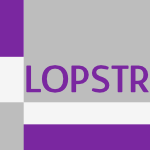 LOPSTR-1997-BossiC #source code
LOPSTR-1997-BossiC #source code- Programs Without Failures (AB, NC), pp. 28–48.
 ICSE-1997-ShimaTMT #case study #fault
ICSE-1997-ShimaTMT #case study #fault- A Study on the Failure Intensity of Different Software Faults (KS, ST, KiM, KT), pp. 86–94.
 ICLP-1997-DebrayGH #analysis #logic programming #source code
ICLP-1997-DebrayGH #analysis #logic programming #source code- Non-Failure Analysis for Logic Programs (SKD, PLG, MVH), pp. 48–62.
 ICLP-1997-Petukhin #embedded
ICLP-1997-Petukhin #embedded- Embedded Implications as a Generalization of Negation as Failure (VP), p. 420.
 PODS-1996-Wong #database #transaction
PODS-1996-Wong #database #transaction- Recovery for Transaction Failures in Object-Based Databases (MHW), pp. 139–149.
 FSE-1995-Weyuker #assessment #reliability #testing #using
FSE-1995-Weyuker #assessment #reliability #testing #using- Using the Consequence of Failures for Testing and Reliability Assessment (EJW), pp. 81–91.
 ILPS-1995-DimopoulosK #logic programming
ILPS-1995-DimopoulosK #logic programming- Logic Programming without Negation as Failure (YD, ACK), pp. 369–383.
 CSEE-1994-Dalcher #case study #community #re-engineering
CSEE-1994-Dalcher #case study #community #re-engineering- Falling Down is Part of Growing Up; the Study of Failure and the Software Engineering Community (DD), pp. 489–496.
 KR-1994-InoueS #on the
KR-1994-InoueS #on the- On Positive Occurrences of Negation as Failure (KI, CS), pp. 293–304.
 KBSE-1993-MiS #approach #named #process
KBSE-1993-MiS #approach #named #process- Articulation: An Integrated Approach to the Diagnosis, Replanning, and Rescheduling of Software Process Failures (PM, WS), p. 14.
 VLDB-1993-Mohan #effectiveness
VLDB-1993-Mohan #effectiveness- A Cost-Effective Method for Providing Improved Data Availability During DBMS Restart Recovery After a Failure (CM), pp. 368–379.
 HCI-SHI-1993-TakeguchiTO #analysis #information management #representation #scalability
HCI-SHI-1993-TakeguchiTO #analysis #information management #representation #scalability- A Knowledge Representation for Large Scale Integrated Circuit Failure Analysis (YT, TT, SO), pp. 92–97.
 ILPS-1993-OsorioJ #set
ILPS-1993-OsorioJ #set- Subset Assertions and Negation As Failure (MO, BJ), p. 637.
 SEI-1992-MedairosCCK #re-engineering #recommendation
SEI-1992-MedairosCCK #re-engineering #recommendation- Software Engineering Course Projects: Failures and Recommendations (SM, KWC, JSC, MK), pp. 324–338.
 HPDC-1992-NgM #array #maintenance #performance
HPDC-1992-NgM #array #maintenance #performance- Maintaining Good Performance In Disk Arrays During Failure via Uniform Parity Group Distribution (SWN, RLM), pp. 260–269.
 CADE-1992-HuaZ #induction #named
CADE-1992-HuaZ #induction #named- FRI: Failure-Resistant Induction in RRL (XH, HZ), pp. 691–695.
 CADE-1992-InoueKH #generative #proving #theorem proving
CADE-1992-InoueKH #generative #proving #theorem proving- Embedding Negation as Failure into a Model Generation Theorem Prover (KI, MK, RH), pp. 400–415.
 JICSLP-1992-GiordanoO #logic programming
JICSLP-1992-GiordanoO #logic programming- Negation as Failure in Intuitionistic Logic Programming (LG, NO), pp. 431–445.
 KR-1991-Geffner
KR-1991-Geffner- Beyond Negation as Failure (HG), pp. 218–229.
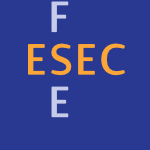 ESEC-1991-Voas #impact analysis #predict
ESEC-1991-Voas #impact analysis #predict- A Dynamic Failure Model for Predicting the Impact that a Program Location has on the Program (JMV), pp. 308–331.
 ICSE-1991-Tully
ICSE-1991-Tully- A Failure of Management Nerve and Vision (CT), pp. 154–155.
 DAC-1990-DagaB
DAC-1990-DagaB- Failure Recovery in the MICON System (AJD, WPB), pp. 686–691.
 VLDB-1990-MuntzL #analysis #array #performance
VLDB-1990-MuntzL #analysis #array #performance- Performance Analysis of Disk Arrays under Failure (RRM, JCSL), pp. 162–173.
 ML-1990-Bennett #approximate
ML-1990-Bennett #approximate- Reducing Real-world Failures of Approximate Explanation-based Rules (SWB), pp. 226–234.
 ICSE-1990-Thomas #safety
ICSE-1990-Thomas #safety- Assessing Failure Probabilities in Safety-Critical Systems Containing Software (MT), p. 227.
 CLP-1990-MeyerC90 #architecture #logic programming #source code
CLP-1990-MeyerC90 #architecture #logic programming #source code- Architected Failure Handling for AND-Parallel Logic Programs (DMM, JSC), pp. 271–290.
 NACLP-1990-BonnerM #logic programming
NACLP-1990-BonnerM #logic programming- Adding Negation-as-Failure to Intuitionistic Logic Programming (AJB, LTM), pp. 681–703.
 NACLP-1990-LeviMP #symmetry
NACLP-1990-LeviMP #symmetry- Failure and Success made Symmetric (GL, MM, CP), pp. 3–22.
 ML-1989-BirnbaumCK
ML-1989-BirnbaumCK- Issues in the Justification-Based Diagnosis of Planning Failures (LB, GC, BK), pp. 194–196.
 ASPLOS-1989-GibsonHKKP #array #scalability
ASPLOS-1989-GibsonHKKP #array #scalability- Failure Correction Techniques for Large Disk Arrays (GAG, LH, RMK, RHK, DAP), pp. 123–132.
 NACLP-1989-Harland
NACLP-1989-Harland- A Kripke-like Model for Negation as Failure (JH), pp. 626–642.
 NACLP-1989-MaluszynskiN
NACLP-1989-MaluszynskiN- Fail Substitutions for Negation as Failure (JM, TN), pp. 461–476.
 CSCW-1988-Egido #bibliography #video
CSCW-1988-Egido #bibliography #video- Video Conferencing as a Technology to Support Group Work: A Review of its Failures (CE), pp. 13–24.
 JICSCP-1988-BruffaertsH88 #prolog #proving
JICSCP-1988-BruffaertsH88 #prolog #proving- Proof Trees for Negation as Failure: Yet Another Prolog Meta-Interpreter (AB, EH), pp. 343–358.
 ICALP-1987-GerthB #communication #process
ICALP-1987-GerthB #communication #process- A Timed Failures Model for Extended Communicating Processes (RG, AB), pp. 95–114.
 SIGIR-1987-Harman #analysis #online
SIGIR-1987-Harman #analysis #online- A Failure Analysis on the Limitations of Suffixing in an Online Environment (DH), pp. 102–107.
 POPL-1987-LeivantF
POPL-1987-LeivantF- Skinny and Fleshy Failures of Relative Completeness (DL, TF), pp. 246–252.
 ICSE-1987-EhrlichE #modelling #reliability #testing
ICSE-1987-EhrlichE #modelling #reliability #testing- Modeling Software Failures and Reliability Growth During System Testing (WKE, TJE), pp. 72–82.
 ICLP-1987-Kunen87 #set
ICLP-1987-Kunen87 #set- Answer Sets and Negation-as-Failure (KK), pp. 219–228.
 SLP-1987-Winsborough87 #parallel #semantics
SLP-1987-Winsborough87 #parallel #semantics- Semantically Transparent Selective Reset for AND Parallel Interpreters Based on the Origin of Failures (WHW), pp. 134–152.
 DAC-1986-ShihA #generative #physics #testing
DAC-1986-ShihA #generative #physics #testing- Transistor-level test generation for physical failures in CMOS circuits (HCS, JAA), pp. 243–249.
 PODS-1986-Naqvi #first-order #query
PODS-1986-Naqvi #first-order #query- Negation as Failure for First-Order Queries (SAN), pp. 114–122.
 SLP-1986-Gelder86 #logic programming #source code #using
SLP-1986-Gelder86 #logic programming #source code #using- Negation as Failure Using Tight Derivations for General Logic Programs (AVG), pp. 127–138.
 DAC-1985-Tendolkar #analysis #fault #random
DAC-1985-Tendolkar #analysis #fault #random- Analysis of timing failures due to random AC defects in VLSI modules (NNT), pp. 709–714.
 VLDB-1985-BlausteinK
VLDB-1985-BlausteinK- Updating Replicated Data During Communications Failures (BTB, CWK), pp. 49–58.
 FPCA-1985-Wadler85 #backtracking #exception #functional #how #lazy evaluation #pattern matching
FPCA-1985-Wadler85 #backtracking #exception #functional #how #lazy evaluation #pattern matching- How to Replace Failure by a List of Successes: A method for exception handling, backtracking, and pattern matching in lazy functional languages (PW), pp. 113–128.
 ICSE-1985-MillerS
ICSE-1985-MillerS- Completely Monotone Regression Estimates of Software Failure Rates (DRM, AS), pp. 343–349.
 SLP-1984-Khabaza84 #parallel
SLP-1984-Khabaza84 #parallel- Negation as Failure and Parallelism (TK), pp. 70–75.
 DAC-1983-Tendolkar
DAC-1983-Tendolkar- Diagnosis of TCM failures in the IBM 3081 Processor complex (NNT), pp. 196–200.
 ILPC-1982-Blair82
ILPC-1982-Blair82- The Undecidability of Two Completeness Notions for the “Negation as Failure” (HAB), pp. 164–168.
 ICSE-1979-AbeSA #analysis
ICSE-1979-AbeSA #analysis- An Analysis of Software Project Failure (JA, KS, HA), pp. 378–385.
 ICALP-1977-BackhouseL #graph
ICALP-1977-BackhouseL #graph- Factor Graphs, Failure Functions and BI-Trees (RCB, RKL), pp. 61–75.
 QoSA-2015-HofigZS #automation #dependence #using
QoSA-2015-HofigZS #automation #dependence #using CASE-2015-CheongSB #ad hoc #automation #optimisation
CASE-2015-CheongSB #ad hoc #automation #optimisation CASE-2015-KaipaTSKLG #automation #using
CASE-2015-KaipaTSKLG #automation #using DATE-2015-AwanoHS #named #performance #probability
DATE-2015-AwanoHS #named #performance #probability DATE-2015-BishnoiLGF #2d #named
DATE-2015-BishnoiLGF #2d #named DATE-2015-DoblerHRPRB #adaptation #identification #named
DATE-2015-DoblerHRPRB #adaptation #identification #named SANER-2015-RoehmNB #automation #interactive
SANER-2015-RoehmNB #automation #interactive SEFM-2015-KringsBL #proving
SEFM-2015-KringsBL #proving CSCW-2015-Warncke-WangAHT #community #quality
CSCW-2015-Warncke-WangAHT #community #quality ICSE-v1-2015-PastoreM #detection #named
ICSE-v1-2015-PastoreM #detection #named ICSE-v2-2015-AndersonSD #case study #industrial #predict
ICSE-v2-2015-AndersonSD #case study #industrial #predict HPDC-2015-GamellTHMKCP
HPDC-2015-GamellTHMKCP SOSP-2015-KasikciSPPC #automation #sketching
SOSP-2015-KasikciSPPC #automation #sketching CAV-2015-LahiriSH #automation #equivalence
CAV-2015-LahiriSH #automation #equivalence ICST-2015-MahajanH #detection #html #locality #using
ICST-2015-MahajanH #detection #html #locality #using ICST-2015-MahajanH15a #debugging #html #named
ICST-2015-MahajanH15a #debugging #html #named QoSA-2014-BuhnovaCF #bibliography #modelling #predict #reliability
QoSA-2014-BuhnovaCF #bibliography #modelling #predict #reliability ASE-2014-MahajanH #comparison #html #image #using
ASE-2014-MahajanH #comparison #html #image #using DAC-2014-MukherjeeL
DAC-2014-MukherjeeL DAC-2014-WuXKCH #named #simulation #statistics #towards
DAC-2014-WuXKCH #named #simulation #statistics #towards DATE-2014-FriedlerKMNS #effectiveness #locality #slicing #using
DATE-2014-FriedlerKMNS #effectiveness #locality #slicing #using DATE-2014-RamboTDAE #analysis #realtime
DATE-2014-RamboTDAE #analysis #realtime VLDB-2015-ShenCJLOT14 #distributed #graph #performance
VLDB-2015-ShenCJLOT14 #distributed #graph #performance ITiCSE-2014-WatsonL #programming #revisited
ITiCSE-2014-WatsonL #programming #revisited FM-2014-MaricS #hardware #memory management #transaction #verification
FM-2014-MaricS #hardware #memory management #transaction #verification CHI-2014-GreenbergG #learning #online
CHI-2014-GreenbergG #learning #online ICEIS-v1-2014-RezendeJC #communication #problem #workflow
ICEIS-v1-2014-RezendeJC #communication #problem #workflow KDD-2014-HerodotouDBOF #locality #network #realtime #scalability
KDD-2014-HerodotouDBOF #locality #network #realtime #scalability SAC-2014-WangWPSC #collaboration #network #process
SAC-2014-WangWPSC #collaboration #network #process FSE-2014-SwansonCDGF #adaptation #configuration management #self
FSE-2014-SwansonCDGF #adaptation #configuration management #self ASPLOS-2014-ArulrajJL #hardware #memory management
ASPLOS-2014-ArulrajJL #hardware #memory management OSDI-2014-YuanLZRZZJS #analysis #data-driven #distributed #testing
OSDI-2014-YuanLZRZZJS #analysis #data-driven #distributed #testing OSDI-2014-ZhaiCWF #as a service #correlation #independence
OSDI-2014-ZhaiCWF #as a service #correlation #independence PPoPP-2014-CunninghamGHIKMSTT #performance #programming
PPoPP-2014-CunninghamGHIKMSTT #performance #programming ICST-2014-KifetewJTOT #grammarware #source code
ICST-2014-KifetewJTOT #grammarware #source code ASE-2013-KifetewJTOT #approach #grammarware #named #source code
ASE-2013-KifetewJTOT #approach #grammarware #named #source code CASE-2013-ChenK #distributed #probability
CASE-2013-ChenK #distributed #probability CASE-2013-NaikMRHB
CASE-2013-NaikMRHB DATE-2013-GuoYZC #hybrid #low cost
DATE-2013-GuoYZC #hybrid #low cost ICPC-2013-RoehmGBJM #interactive #monitoring
ICPC-2013-RoehmGBJM #interactive #monitoring ICSM-2013-LeL #approach #automation #effectiveness #fault #locality #predict #tool support
ICSM-2013-LeL #approach #automation #effectiveness #fault #locality #predict #tool support PLDI-2013-HuangZD #concurrent #named
PLDI-2013-HuangZD #concurrent #named HIMI-LCCB-2013-KuritaKWS #analysis
HIMI-LCCB-2013-KuritaKWS #analysis KDIR-KMIS-2013-Ibarra-SanchezPO #analysis #case study #risk management #using
KDIR-KMIS-2013-Ibarra-SanchezPO #analysis #case study #risk management #using SAC-2013-HuangXCL #adaptation #algorithm #analysis #detection #implementation #parallel #random testing #testing
SAC-2013-HuangXCL #adaptation #algorithm #analysis #detection #implementation #parallel #random testing #testing SAC-2013-VeeraragavanBMVNM #analysis #comprehension #distributed #experience #interactive #metric #multi #quality
SAC-2013-VeeraragavanBMVNM #analysis #comprehension #distributed #experience #interactive #metric #multi #quality ICSE-2013-BellSK #lightweight #named
ICSE-2013-BellSK #lightweight #named ICSE-2013-CarzanigaGMPP #automation #runtime
ICSE-2013-CarzanigaGMPP #automation #runtime ICSE-2013-Ell #developer #identification #network
ICSE-2013-Ell #developer #identification #network ICSE-2013-Jin #debugging
ICSE-2013-Jin #debugging ICSE-2013-LiZLXLLX #distributed #source code
ICSE-2013-LiZLXLLX #distributed #source code ICSE-2013-Simpson #communication #detection #developer
ICSE-2013-Simpson #communication #detection #developer ICSE-2013-SukkerdBWZB #comprehension
ICSE-2013-SukkerdBWZB #comprehension ASPLOS-2013-ArulrajCJL #hardware #performance
ASPLOS-2013-ArulrajCJL #hardware #performance ASPLOS-2013-LuciaC #empirical #parallel #source code #thread
ASPLOS-2013-LuciaC #empirical #parallel #source code #thread HPCA-2013-MahmoodKH #adaptation #architecture #named #scalability
HPCA-2013-MahmoodKH #adaptation #architecture #named #scalability ICLP-J-2013-GangeNSSS #constraints #logic programming
ICLP-J-2013-GangeNSSS #constraints #logic programming ICST-2013-PastoreM #debugging #named
ICST-2013-PastoreM #debugging #named ICTSS-2013-ElyasovPH #algebra #mining #specification
ICTSS-2013-ElyasovPH #algebra #mining #specification ISSTA-2013-JinO #fault #locality #named
ISSTA-2013-JinO #fault #locality #named ASE-2012-YuLCZ #debugging #fault
ASE-2012-YuLCZ #debugging #fault DATE-2012-Shahid #estimation #performance
DATE-2012-Shahid #estimation #performance DATE-2012-VatajeluF #evaluation #parametricity #performance #reliability
DATE-2012-VatajeluF #evaluation #parametricity #performance #reliability DATE-2012-WuLMC #approach #correlation
DATE-2012-WuLMC #approach #correlation VLDB-2012-GraefeK #database #detection
VLDB-2012-GraefeK #database #detection ICPC-2012-ParninR #memory management
ICPC-2012-ParninR #memory management KDD-2012-OlteanuS #clustering #correlation #energy #named #network #nondeterminism #predict
KDD-2012-OlteanuS #clustering #correlation #energy #named #network #nondeterminism #predict RecSys-2012-EkstrandR #algorithm #predict #recommendation
RecSys-2012-EkstrandR #algorithm #predict #recommendation REFSQ-2012-RaspotnigO #analysis #case study #diagrams #sequence chart
REFSQ-2012-RaspotnigO #analysis #case study #diagrams #sequence chart SAC-2012-AtifMO #detection #verification
SAC-2012-AtifMO #detection #verification FSE-2012-DiGiuseppeJ12a #clustering #concept
FSE-2012-DiGiuseppeJ12a #clustering #concept ICSE-2012-JinO #debugging #named
ICSE-2012-JinO #debugging #named ICSE-2012-Yu #analysis #identification #using
ICSE-2012-Yu #analysis #identification #using HPDC-2012-DinuN #comprehension
HPDC-2012-DinuN #comprehension OSDI-2012-YuanPHLLTZS
OSDI-2012-YuanPHLLTZS CAV-2012-BerdineCIW #abstraction #analysis
CAV-2012-BerdineCIW #abstraction #analysis ICST-2012-DiGiuseppeJ #behaviour #clustering #empirical #fault
ICST-2012-DiGiuseppeJ #behaviour #clustering #empirical #fault ICST-2012-GhandehariLXKK #combinator #identification #testing
ICST-2012-GhandehariLXKK #combinator #identification #testing ICST-2012-ShakyaXLLKK #classification #combinator #testing #using
ICST-2012-ShakyaXLLKK #classification #combinator #testing #using ISSTA-2012-RobetalerFZO #generative #testing
ISSTA-2012-RobetalerFZO #generative #testing CBSE-2011-DistefanoFGM #analysis #composition #multi #reliability #workflow
CBSE-2011-DistefanoFGM #analysis #composition #multi #reliability #workflow QoSA-ISARCS-2011-HofigD #analysis #execution
QoSA-ISARCS-2011-HofigD #analysis #execution ASE-2011-GanaiAWGB #concurrent #multi #named #predict #testing #thread
ASE-2011-GanaiAWGB #concurrent #multi #named #predict #testing #thread ASE-2011-StehleLSRM #geometry #using
ASE-2011-StehleLSRM #geometry #using ASE-2011-ZhangMPL #monitoring #predict #runtime
ASE-2011-ZhangMPL #monitoring #predict #runtime DAC-2011-DongL #performance #predict
DAC-2011-DongL #performance #predict DATE-2011-DrmanacSWWA #multi #optimisation #parametricity #predict #testing
DATE-2011-DrmanacSWWA #multi #optimisation #parametricity #predict #testing SIGMOD-2011-Quiane-RuizPSD #pipes and filters
SIGMOD-2011-Quiane-RuizPSD #pipes and filters ICSM-2011-ZhangKK
ICSM-2011-ZhangKK PASTE-2011-QiNSR
PASTE-2011-QiNSR CIAA-2011-FelscherT #composition #detection
CIAA-2011-FelscherT #composition #detection FM-2011-ChenLW #communication #process #refinement
FM-2011-ChenLW #communication #process #refinement HCI-UA-2011-JohnsonLTS #approach #comprehension #monitoring #towards
HCI-UA-2011-JohnsonLTS #approach #comprehension #monitoring #towards HIMI-v2-2011-KrautKBMSCV #effectiveness
HIMI-v2-2011-KrautKBMSCV #effectiveness ICEIS-v2-2011-FronzaSSV #approach #predict #towards
ICEIS-v2-2011-FronzaSSV #approach #predict #towards ICEIS-v3-2011-TangX #analysis #communication #modelling #network
ICEIS-v3-2011-TangX #analysis #communication #modelling #network SEKE-2011-FronzaSSV #predict #using
SEKE-2011-FronzaSSV #predict #using SEKE-2011-ShinM #embedded #self
SEKE-2011-ShinM #embedded #self OOPSLA-2011-JoshiGS #injection #multi #named #programmable
OOPSLA-2011-JoshiGS #injection #multi #named #programmable RE-2011-FitzgeraldLF #feature model #predict
RE-2011-FitzgeraldLF #feature model #predict ESEC-FSE-2011-Rossler #comprehension
ESEC-FSE-2011-Rossler #comprehension ICSE-2011-CataldoH #analysis #development #empirical #feature model #integration
ICSE-2011-CataldoH #analysis #development #empirical #feature model #integration SOSP-2011-LenersWHAW #detection #distributed #network
SOSP-2011-LenersWHAW #detection #distributed #network ICST-2011-CzerwonkaDNTT #analysis #case study #experience #named #predict
ICST-2011-CzerwonkaDNTT #analysis #case study #experience #named #predict ICST-2011-ZimmermannNHPW #dependence #empirical
ICST-2011-ZimmermannNHPW #dependence #empirical ICTSS-2011-ShinboH #communication #detection #empirical #mobile
ICTSS-2011-ShinboH #communication #detection #empirical #mobile ISSTA-2011-BurgerZ
ISSTA-2011-BurgerZ ISSTA-2011-ZhangZ #adaptation #interactive #parametricity #testing
ISSTA-2011-ZhangZ #adaptation #interactive #parametricity #testing CBSE-2010-FilieriGGM #analysis #component #multi #reliability
CBSE-2010-FilieriGGM #analysis #component #multi #reliability ASE-2010-LiHG #ajax #behaviour #detection #interactive #web
ASE-2010-LiHG #ajax #behaviour #detection #interactive #web CASE-2010-RodriguezBMRW #analysis #assembly #detection
CASE-2010-RodriguezBMRW #analysis #assembly #detection CASE-2010-Tobon-MejiaMZT #markov
CASE-2010-Tobon-MejiaMZT #markov DATE-2010-ChenO #adaptation #effectiveness #identification
DATE-2010-ChenO #adaptation #effectiveness #identification DATE-2010-OstendorffWSK #adaptation #approach
DATE-2010-OstendorffWSK #adaptation #approach FASE-2010-LuoZZH #approach #concurrent #lightweight
FASE-2010-LuoZZH #approach #concurrent #lightweight ICSM-2010-GergelyBGG #case study #experience #industrial #metric
ICSM-2010-GergelyBGG #case study #experience #industrial #metric STOC-2010-DuanP #graph
STOC-2010-DuanP #graph SOFTVIS-2010-AdamoliH #analysis #framework #named #performance #visualisation
SOFTVIS-2010-AdamoliH #analysis #framework #named #performance #visualisation ICEIS-AIDSS-2010-Vilas-BoasSPSR #data mining #mining #predict
ICEIS-AIDSS-2010-Vilas-BoasSPSR #data mining #mining #predict ICPR-2010-KalalMM #automation #detection #fault
ICPR-2010-KalalMM #automation #detection #fault KMIS-2010-KrainesG #ontology #reuse #semantics
KMIS-2010-KrainesG #ontology #reuse #semantics SEKE-2010-PimentelSC #requirements
SEKE-2010-PimentelSC #requirements SEKE-2010-WangPACC #analysis #automation #process
SEKE-2010-WangPACC #analysis #automation #process ECOOP-2010-DhooliaMSS #debugging #using
ECOOP-2010-DhooliaMSS #debugging #using FSE-2010-Johnson10a #research
FSE-2010-Johnson10a #research ICSE-2010-Schroter #recommendation
ICSE-2010-Schroter #recommendation CASE-2009-LyTBPV #fault #perspective
CASE-2009-LyTBPV #fault #perspective CASE-2009-ZiedSN #maintenance #probability #random
CASE-2009-ZiedSN #maintenance #probability #random DAC-2009-TamPB #automation #validation
DAC-2009-TamPB #automation #validation DAC-2009-WangYLP #analysis #parametricity
DAC-2009-WangYLP #analysis #parametricity DATE-2009-TangGCR #generative #multi
DATE-2009-TangGCR #generative #multi FASE-2009-SumnerZ #algorithm #automation
FASE-2009-SumnerZ #algorithm #automation CSMR-2009-MarwedeRHH #automation #behaviour #correlation #distributed #scalability
CSMR-2009-MarwedeRHH #automation #behaviour #correlation #distributed #scalability ICSM-2009-JiaSYL #data transformation #difference #predict #question #set
ICSM-2009-JiaSYL #data transformation #difference #predict #question #set ICALP-v2-2009-GuerraouiR #mobile
ICALP-v2-2009-GuerraouiR #mobile CHI-2009-GaverBKBJ #design #how #what
CHI-2009-GaverBKBJ #design #how #what KDD-2009-LoCHKS #approach #behaviour #classification #detection #mining
KDD-2009-LoCHKS #approach #behaviour #classification #detection #mining TOOLS-EUROPE-2009-BoixCVMD #ad hoc #mobile #network
TOOLS-EUROPE-2009-BoixCVMD #ad hoc #mobile #network RE-2009-TunJLNY #problem #using
RE-2009-TunJLNY #problem #using SAC-2009-KimmSHS #development #safety
SAC-2009-KimmSHS #development #safety ICSE-2009-MarianiPP #analysis #automation #tool support
ICSE-2009-MarianiPP #analysis #automation #tool support ICSE-2009-WolfSDN #analysis #communication #developer #network #predict #social #using
ICSE-2009-WolfSDN #analysis #communication #developer #network #predict #social #using SOSP-2009-KadavRS #hardware
SOSP-2009-KadavRS #hardware ISSTA-2009-ClauseO #automation #identification #named #using
ISSTA-2009-ClauseO #automation #identification #named #using ISSTA-2009-FoucheCP #array #incremental #scalability
ISSTA-2009-FoucheCP #array #incremental #scalability CASE-2008-Morrison #evolution
CASE-2008-Morrison #evolution DAC-2008-LiASR #array #design #memory management #modelling #probability #random #statistics
DAC-2008-LiASR #array #design #memory management #modelling #probability #random #statistics DAC-2008-TamPB #analysis #automation #layout #locality #precise #using
DAC-2008-TamPB #analysis #automation #layout #locality #precise #using DATE-2008-ElmqvistN #analysis #component #incremental #tool support
DATE-2008-ElmqvistN #analysis #component #incremental #tool support PASTE-2008-ZhangLGZ #approach #effectiveness #hybrid #identification
PASTE-2008-ZhangLGZ #approach #effectiveness #hybrid #identification PLDI-2008-DincklageD #analysis
PLDI-2008-DincklageD #analysis KR-2008-SardinaPG #behaviour #composition
KR-2008-SardinaPG #behaviour #composition SEKE-2008-DaiYZG #approach #composition #predict #self #web #web service
SEKE-2008-DaiYZG #approach #composition #predict #self #web #web service ECOOP-2008-ArtziKE #named
ECOOP-2008-ArtziKE #named TOOLS-EUROPE-2008-SteimannES #fault #testing #towards
TOOLS-EUROPE-2008-SteimannES #fault #testing #towards SAC-2008-FahmyRJ #realtime #scheduling #thread
SAC-2008-FahmyRJ #realtime #scheduling #thread FSE-2008-MeneelyWSO #analysis #developer #network #predict #social
FSE-2008-MeneelyWSO #analysis #developer #network #predict #social FSE-2008-PinzgerNM #developer #network #predict #question
FSE-2008-PinzgerNM #developer #network #predict #question HPDC-2008-ShrinivasN #data mining #detection #grid #mining
HPDC-2008-ShrinivasN #data mining #detection #grid #mining ICST-2008-TravisonS #automation #identification #pattern matching
ICST-2008-TravisonS #automation #identification #pattern matching CASE-2007-PanH #analysis
CASE-2007-PanH #analysis DAC-2007-GuptaKKSS
DAC-2007-GuptaKKSS DATE-2007-YangG
DATE-2007-YangG VLDB-2007-SilbersteinGMPY #approach
VLDB-2007-SilbersteinGMPY #approach ICSM-2007-LiuZHB #approach
ICSM-2007-LiuZHB #approach HCI-IPT-2007-VillalbaPA #design #interactive #smarttech
HCI-IPT-2007-VillalbaPA #design #interactive #smarttech ICEIS-SAIC-2007-LokeLIK #adaptation #approach #smarttech #towards #workflow
ICEIS-SAIC-2007-LokeLIK #adaptation #approach #smarttech #towards #workflow KDD-2007-Parthasarathy #data mining #learning #mining
KDD-2007-Parthasarathy #data mining #learning #mining RE-2007-HoWA #performance #requirements #specification
RE-2007-HoWA #performance #requirements #specification RE-2007-KamataT #how #quality #question #requirements
RE-2007-KamataT #how #quality #question #requirements SAC-2007-MaHA #detection #evaluation
SAC-2007-MaHA #detection #evaluation SAC-2007-SatzgerPTU #adaptation #detection #distributed
SAC-2007-SatzgerPTU #adaptation #detection #distributed ESEC-FSE-2007-SherriffHLW #identification #static analysis #using
ESEC-FSE-2007-SherriffHLW #identification #static analysis #using ICSE-2007-ClauseO #debugging
ICSE-2007-ClauseO #debugging HPDC-2007-RenEB #fine-grained
HPDC-2007-RenEB #fine-grained SOSP-2007-TucekLHXZ #named
SOSP-2007-TucekLHXZ #named SAT-2007-AloulK #approach #deployment #satisfiability
SAT-2007-AloulK #approach #deployment #satisfiability CASE-2006-LuL #evaluation #independence #reliability #safety
CASE-2006-LuL #evaluation #independence #reliability #safety DAC-2006-GhoshMKR #power management #reduction #self
DAC-2006-GhoshMKR #power management #reduction #self DAC-2006-KanjJN #analysis #design
DAC-2006-KanjJN #analysis #design DATE-2006-Kundu #analysis #design
DATE-2006-Kundu #analysis #design FM-2006-ArthoBH #injection #named #performance
FM-2006-ArthoBH #injection #named #performance AdaEurope-2006-SharifiS #how #transaction
AdaEurope-2006-SharifiS #how #transaction AdaEurope-2006-WagnerF #geometry #modelling #reliability #sequence
AdaEurope-2006-WagnerF #geometry #modelling #reliability #sequence ICEIS-DISI-2006-RinderleBR #framework #process #semantics
ICEIS-DISI-2006-RinderleBR #framework #process #semantics KDD-2006-ZhaoLBX #data mining #identification #mining
KDD-2006-ZhaoLBX #data mining #identification #mining SEKE-2006-MayerS #coordination #debugging #web #web service
SEKE-2006-MayerS #coordination #debugging #web #web service GPCE-2006-BaggeDHK #exception
GPCE-2006-BaggeDHK #exception FSE-2006-LiuH #approach #fault #proximity
FSE-2006-LiuH #approach #fault #proximity FSE-2006-StorzerRRT #classification #java #source code #using
FSE-2006-StorzerRRT #classification #java #source code #using ICSE-2006-NagappanBZ #component #metric #mining #predict
ICSE-2006-NagappanBZ #component #metric #mining #predict CBSE-2005-GrunskeKP #component #evaluation #modelling #safety
CBSE-2005-GrunskeKP #component #evaluation #modelling #safety WICSA-2005-TekinerdoganSA #analysis #architecture #reliability #using
WICSA-2005-TekinerdoganSA #analysis #architecture #reliability #using ASE-2005-GuptaHZG #using
ASE-2005-GuptaHZG #using ASE-2005-SprenkleGSP #automation #detection #web
ASE-2005-SprenkleGSP #automation #detection #web CASE-2005-ChewL #multi #robust
CASE-2005-ChewL #multi #robust CASE-2005-WangCL #capacity #robust #using
CASE-2005-WangCL #capacity #robust #using ICALP-2005-FokkinkN #finite #semantics
ICALP-2005-FokkinkN #finite #semantics FM-2005-Johnson #debugging #formal method #using
FM-2005-Johnson #debugging #formal method #using IFM-2005-GrunskeLYW #analysis #automation #behaviour #design #specification
IFM-2005-GrunskeLYW #analysis #automation #behaviour #design #specification IFM-2005-WeiH #csp
IFM-2005-WeiH #csp ICEIS-v1-2005-AndreouL #analysis #parametricity #reliability
ICEIS-v1-2005-AndreouL #analysis #parametricity #reliability ICEIS-v3-2005-MenkhausA #analysis #embedded #metric
ICEIS-v3-2005-MenkhausA #analysis #embedded #metric KDD-2005-ChenJUY #component #detection #locality #online
KDD-2005-ChenJUY #component #detection #locality #online KDD-2005-YamanishiM #mining #monitoring #network
KDD-2005-YamanishiM #mining #monitoring #network KDD-2005-YangL #learning #predict
KDD-2005-YangL #learning #predict SEKE-2005-ChenKZ #adaptation #effectiveness #on the #random testing #testing
SEKE-2005-ChenKZ #adaptation #effectiveness #on the #random testing #testing ICSE-2005-CleveZ
ICSE-2005-CleveZ SOSP-2005-QinTSZ #debugging #named
SOSP-2005-QinTSZ #debugging #named DAC-2004-JerkeLS #design #layout
DAC-2004-JerkeLS #design #layout DATE-v2-2004-BernardiniPM
DATE-v2-2004-BernardiniPM DATE-v2-2004-TirumurtiKSC #approach #modelling #power management
DATE-v2-2004-TirumurtiKSC #approach #modelling #power management ITiCSE-WGR-2004-RountreeRRH #predict
ITiCSE-WGR-2004-RountreeRRH #predict FLOPS-2004-BuenoLH #abstract interpretation #analysis #multi #standard
FLOPS-2004-BuenoLH #abstract interpretation #analysis #multi #standard FLOPS-2004-Kahl #calculus #pattern matching
FLOPS-2004-Kahl #calculus #pattern matching ICEIS-v2-2004-SilvaCSGN #multi #network #using
ICEIS-v2-2004-SilvaCSGN #multi #network #using ICEIS-v5-2004-AvisonW #information management #lens #web
ICEIS-v5-2004-AvisonW #information management #lens #web SAC-2004-SheldonJ #embedded #reliability
SAC-2004-SheldonJ #embedded #reliability FSE-2004-ManevichSA #named #static analysis
FSE-2004-ManevichSA #named #static analysis OSDI-2004-DunaganHJKTW #distributed #lightweight #named
OSDI-2004-DunaganHJKTW #distributed #lightweight #named OSDI-2004-RinardCDRLB #security
OSDI-2004-RinardCDRLB #security OSDI-2004-ZhangZPPW #internet #monitoring #named
OSDI-2004-ZhangZPPW #internet #monitoring #named ICALP-2003-BlomFN #axiom #on the #simulation
ICALP-2003-BlomFN #axiom #on the #simulation FME-2003-Randell #fault #on the
FME-2003-Randell #fault #on the ICEIS-v3-2003-NahouraiiWD #analysis #information management
ICEIS-v3-2003-NahouraiiWD #analysis #information management ICSE-2003-PodgurskiLFMMSW #automation
ICSE-2003-PodgurskiLFMMSW #automation HPDC-2003-HwangK #flexibility #framework #grid #named #workflow
HPDC-2003-HwangK #flexibility #framework #grid #named #workflow ICLP-2003-NieuwenborghV #order
ICLP-2003-NieuwenborghV #order CBSE-2003-InverardiT #assembly #component #composition #synthesis
CBSE-2003-InverardiT #assembly #component #composition #synthesis DAC-2002-LeeKK #named #verification
DAC-2002-LeeKK #named #verification ESOP-2002-WansbroughNSS #semantics #thread
ESOP-2002-WansbroughNSS #semantics #thread ICSM-2002-Schneidewind #detection #fault
ICSM-2002-Schneidewind #detection #fault FLOPS-2002-Lopez-FraguasS #functional #logic programming
FLOPS-2002-Lopez-FraguasS #functional #logic programming IFM-2002-ZulkernineS #algorithm #automation #detection
IFM-2002-ZulkernineS #algorithm #automation #detection AdaEurope-2002-DoudouGG #detection #encapsulation
AdaEurope-2002-DoudouGG #detection #encapsulation ECOOP-2002-KienzleG #aspect-oriented #concurrent #named
ECOOP-2002-KienzleG #aspect-oriented #concurrent #named TOOLS-USA-2002-PeriorellisD #collaboration #enterprise
TOOLS-USA-2002-PeriorellisD #collaboration #enterprise CAV-2002-YonedaKM #analysis #automation #constraints
CAV-2002-YonedaKM #analysis #automation #constraints ISSTA-2002-ChoiZ #concurrent #thread
ISSTA-2002-ChoiZ #concurrent #thread DATE-2001-LechnerRH #comprehension #requirements #towards
DATE-2001-LechnerRH #comprehension #requirements #towards CSEET-2001-DonaldsonJ
CSEET-2001-DonaldsonJ CSEET-2001-DonaldsonJ01a #approach
CSEET-2001-DonaldsonJ01a #approach CSEET-2001-Monarch #comprehension #re-engineering
CSEET-2001-Monarch #comprehension #re-engineering ICML-2001-HamerlyE #predict
ICML-2001-HamerlyE #predict ESEC-FSE-2001-DickinsonLP
ESEC-FSE-2001-DickinsonLP ICSE-2001-DickinsonLP #analysis #clustering #execution
ICSE-2001-DickinsonLP #analysis #clustering #execution AdaEurope-2000-BarrazaPCC #development #predict
AdaEurope-2000-BarrazaPCC #development #predict HPDC-2000-AndersonC #network
HPDC-2000-AndersonC #network OSDI-2000-LowellCC
OSDI-2000-LowellCC CL-2000-Lopez-FraguasH #functional #logic programming #proving #source code
CL-2000-Lopez-FraguasH #functional #logic programming #proving #source code ISSTA-2000-HildebrandtZ
ISSTA-2000-HildebrandtZ ESOP-1999-PodelskiCM #analysis #concurrent #constraints #logic programming #source code
ESOP-1999-PodelskiCM #analysis #concurrent #constraints #logic programming #source code FM-v2-1999-Muller-OlmW #on the
FM-v2-1999-Muller-OlmW #on the PPDP-1999-GoriL #finite #on the #verification
PPDP-1999-GoriL #finite #on the #verification PPDP-1999-NeumerkelM #logic programming #source code
PPDP-1999-NeumerkelM #logic programming #source code ICSE-1999-EzranMT #case study #experience #industrial #reuse #source code #synthesis
ICSE-1999-EzranMT #case study #experience #industrial #reuse #source code #synthesis ICSM-1998-Hissam #case study #experience #information management #off the shelf
ICSM-1998-Hissam #case study #experience #information management #off the shelf KDD-1998-ZakiLO #mining #named #sequence
KDD-1998-ZakiLO #mining #named #sequence ICSE-1998-BinkleyS #dependence #maintenance #metric #predict #runtime #validation
ICSE-1998-BinkleyS #dependence #maintenance #metric #predict #runtime #validation JICSLP-1998-EtalleR
JICSLP-1998-EtalleR CSMR-1997-Michael #constraints #evolution #using
CSMR-1997-Michael #constraints #evolution #using ICALP-1997-RielyH #distributed #process
ICALP-1997-RielyH #distributed #process FME-1997-TejW #csp #higher-order
FME-1997-TejW #csp #higher-order HCI-CC-1997-WestlanderBH #development #information management #interactive #process
HCI-CC-1997-WestlanderBH #development #information management #interactive #process CIKM-1997-MehrotraHK #multi
CIKM-1997-MehrotraHK #multi LOPSTR-1997-BossiC #source code
LOPSTR-1997-BossiC #source code ICSE-1997-ShimaTMT #case study #fault
ICSE-1997-ShimaTMT #case study #fault ICLP-1997-DebrayGH #analysis #logic programming #source code
ICLP-1997-DebrayGH #analysis #logic programming #source code ICLP-1997-Petukhin #embedded
ICLP-1997-Petukhin #embedded PODS-1996-Wong #database #transaction
PODS-1996-Wong #database #transaction FSE-1995-Weyuker #assessment #reliability #testing #using
FSE-1995-Weyuker #assessment #reliability #testing #using ILPS-1995-DimopoulosK #logic programming
ILPS-1995-DimopoulosK #logic programming CSEE-1994-Dalcher #case study #community #re-engineering
CSEE-1994-Dalcher #case study #community #re-engineering KR-1994-InoueS #on the
KR-1994-InoueS #on the KBSE-1993-MiS #approach #named #process
KBSE-1993-MiS #approach #named #process VLDB-1993-Mohan #effectiveness
VLDB-1993-Mohan #effectiveness HCI-SHI-1993-TakeguchiTO #analysis #information management #representation #scalability
HCI-SHI-1993-TakeguchiTO #analysis #information management #representation #scalability ILPS-1993-OsorioJ #set
ILPS-1993-OsorioJ #set SEI-1992-MedairosCCK #re-engineering #recommendation
SEI-1992-MedairosCCK #re-engineering #recommendation HPDC-1992-NgM #array #maintenance #performance
HPDC-1992-NgM #array #maintenance #performance CADE-1992-HuaZ #induction #named
CADE-1992-HuaZ #induction #named CADE-1992-InoueKH #generative #proving #theorem proving
CADE-1992-InoueKH #generative #proving #theorem proving JICSLP-1992-GiordanoO #logic programming
JICSLP-1992-GiordanoO #logic programming KR-1991-Geffner
KR-1991-Geffner ESEC-1991-Voas #impact analysis #predict
ESEC-1991-Voas #impact analysis #predict ICSE-1991-Tully
ICSE-1991-Tully DAC-1990-DagaB
DAC-1990-DagaB VLDB-1990-MuntzL #analysis #array #performance
VLDB-1990-MuntzL #analysis #array #performance ML-1990-Bennett #approximate
ML-1990-Bennett #approximate ICSE-1990-Thomas #safety
ICSE-1990-Thomas #safety CLP-1990-MeyerC90 #architecture #logic programming #source code
CLP-1990-MeyerC90 #architecture #logic programming #source code NACLP-1990-BonnerM #logic programming
NACLP-1990-BonnerM #logic programming NACLP-1990-LeviMP #symmetry
NACLP-1990-LeviMP #symmetry ML-1989-BirnbaumCK
ML-1989-BirnbaumCK ASPLOS-1989-GibsonHKKP #array #scalability
ASPLOS-1989-GibsonHKKP #array #scalability NACLP-1989-Harland
NACLP-1989-Harland NACLP-1989-MaluszynskiN
NACLP-1989-MaluszynskiN CSCW-1988-Egido #bibliography #video
CSCW-1988-Egido #bibliography #video JICSCP-1988-BruffaertsH88 #prolog #proving
JICSCP-1988-BruffaertsH88 #prolog #proving ICALP-1987-GerthB #communication #process
ICALP-1987-GerthB #communication #process SIGIR-1987-Harman #analysis #online
SIGIR-1987-Harman #analysis #online POPL-1987-LeivantF
POPL-1987-LeivantF ICSE-1987-EhrlichE #modelling #reliability #testing
ICSE-1987-EhrlichE #modelling #reliability #testing ICLP-1987-Kunen87 #set
ICLP-1987-Kunen87 #set SLP-1987-Winsborough87 #parallel #semantics
SLP-1987-Winsborough87 #parallel #semantics DAC-1986-ShihA #generative #physics #testing
DAC-1986-ShihA #generative #physics #testing PODS-1986-Naqvi #first-order #query
PODS-1986-Naqvi #first-order #query SLP-1986-Gelder86 #logic programming #source code #using
SLP-1986-Gelder86 #logic programming #source code #using DAC-1985-Tendolkar #analysis #fault #random
DAC-1985-Tendolkar #analysis #fault #random VLDB-1985-BlausteinK
VLDB-1985-BlausteinK FPCA-1985-Wadler85 #backtracking #exception #functional #how #lazy evaluation #pattern matching
FPCA-1985-Wadler85 #backtracking #exception #functional #how #lazy evaluation #pattern matching ICSE-1985-MillerS
ICSE-1985-MillerS SLP-1984-Khabaza84 #parallel
SLP-1984-Khabaza84 #parallel DAC-1983-Tendolkar
DAC-1983-Tendolkar ILPC-1982-Blair82
ILPC-1982-Blair82 ICSE-1979-AbeSA #analysis
ICSE-1979-AbeSA #analysis ICALP-1977-BackhouseL #graph
ICALP-1977-BackhouseL #graph









